Current Student Biographies
P-Z
Patel, Kramay
Piracha, Yasir
Postill, Gemma
Profant, Martin
Psarianos, Pamela
Rahman, Anum
Rajora, Maneesha*
Rennie, Olivia
Shah, Prajay
Shi, Runjie (Bill)
Tieu, Thuan (Paul)
Walpole, Glenn
Ware, Matthaeus
Wennberg, Erica
Zeng, Guan Xiang (Andy)
Zhou, Angela*

*indicates 2023-24 McLaughlin Scholars. Visit our McLaughlin Scholars for a comprehensive list of students supported by the McLaughlin Centre
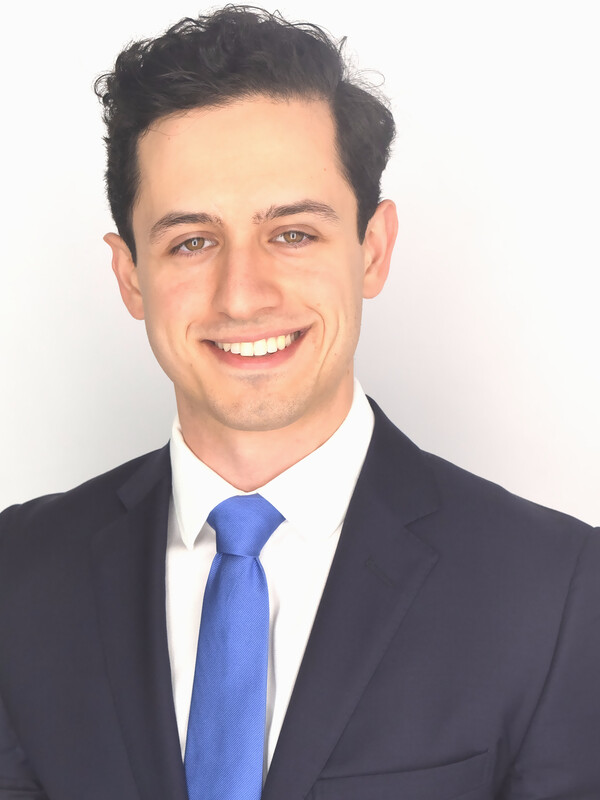
Abbasian, Aram
Supervisor: Dr. Graham Collingridge
Graduate unit: Department of Physiology
Personal background
I grew up partially in Nova Scotia and completed my undergraduate and master's degrees, both in neuroscience, at Dalhousie University. While at Dalhousie, I became captivated by research on synaptic plasticity – the wiring and rewiring that takes place in the brain to store memories. A few years later in my first year of medical school here at the University of Toronto, I learned about the widespread implications for plasticity in my clinical interest of functional neurosurgery, ultimately deciding to pursue this line of work and transfer into the MD/PhD program as a result. Beyond research and medicine and in addition to time with family and friends, I try to make room for exercise and reading, as well as an on-again off-again relationship with meditation.
Research interests
My research is aimed at uncovering the changes that occur at the connections between brain cells when a memory is formed. Using a combination of optical and electrophysiological techniques, I am trying to elucidate the role of several key mechanisms in this process, and determine which are impaired in the early stages of Alzheimer’s disease when therapeutic intervention holds the most promise.
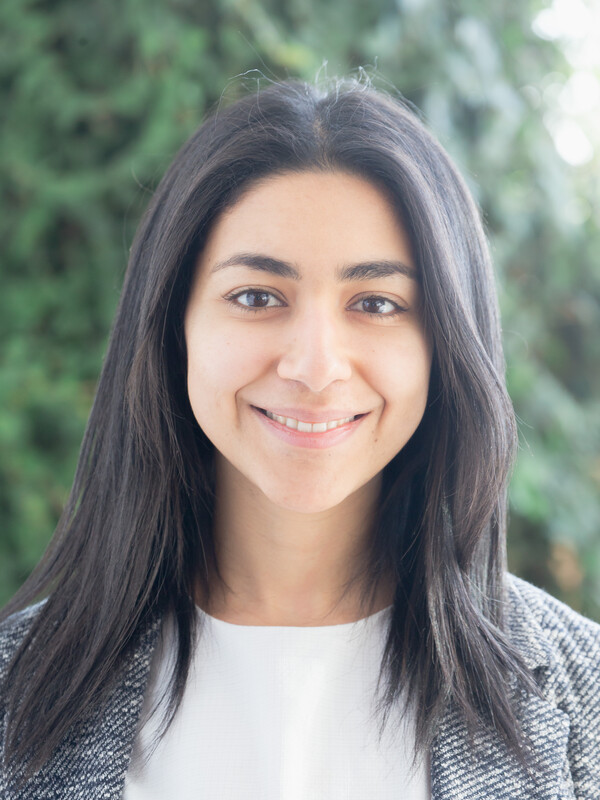
Ahmed, Sara
Supervisor: Dr. Warren Chan
Graduate unit: BME
Personal Background
I was born in Egypt, grew up in the UAE, and immigrated to Canada when I was eight years old. Growing up, I was always the person asking 'why? why? why?'. Naturally, I found myself gravitating towards the sciences. This drive to learn more about how things work along with a few life experiences drew me to medicine and medical research. I pursued an undergraduate degree in life sciences, and specialized in Psychology, Neuroscience, and Behaviour at McMaster University. I was fortunate to gain incredible mentors during my undergraduate degree who supported me on my pursuit towards becoming a clinician-scientist. Through my experiences, I learned about the unique position of clinician-scientists. As a medical doctor you are poised in an optimal position to see patient problems first hand and the applications of available science to help address their issues. As a scientist, you can take these problems to the lab and use science to work towards a solution. I resonated with the position of a clinician-scientist. It provided an avenue for me to ask 'why?' about problems I find fascinating, and to use this curiosity to advocate for patients and find solutions for them. There is also immense privilege in taking your knowledge and ability, and using it to help others as they put their trust in you. When I came to this realization, I decided I wanted to become an MD/PhD. In the future, I hope to take my work internationally to benefit underprivileged populations.
Outside of my career and academic aspirations, I love to travel and meet locals, as well as exploring their languages, cultures, and foods! Social injustice, inequity, and education make me tick, therefore, my extracurriculars tend to revolve around these themes.
Research
I am interested in learning how to apply current technologies to medical problems. I am pursuing a PhD at the Institute of Biomaterials and Biomedical Engineering. My project aims to apply nanotechnology principles to problems in oncology.
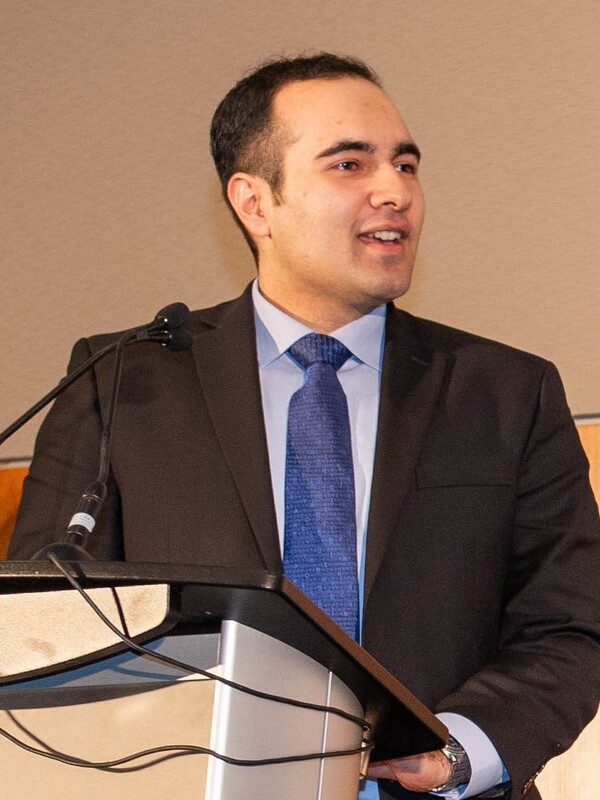
Asadi-Lari, Mohammad (in memoriam)
The newly launched Mohammad and Zeynab Asadi-Lari Award recognizes a MD/PhD student who has demonstrated excellence in innovation and brought about positive change. This award is named in memory of Mohammad Asadi-Lari and his sister Zeynab Asadi-Lari. Mohammad and Zeynab were both highly accomplished young students who were passionate about science. Mohammad focused on empowering youth to be changemakers and innovators. He believed you could achieve global effects by acting locally. This award reminds us that even if we start small, we can all play a role in building a better world.
Personal Background
I was born in Iran, spent my childhood in the UK, my teens in Iran and then moved to Vancouver for my last year of high school. After completing my undergrad in honours cellular, anatomical and physiological sciences (CAPS) at UBC, I couldn’t be more thrilled to enter the MD/PhD program in a global institution like U of T. I often find myself having trouble bringing together my interests in health, science, innovation, education, youth civic engagement and public policy. However, Toronto is a phenomenal place (arguable one of the best) for those interests to converge - it's literally a place where economic, academic and political centres come together. As a big believer in the importance of communities and ecosystems, I am currently working on establishing a Pan-Canadian physician innovator/entrepreneur organization, and I’m also part of the Global Shapers Hub in Toronto, which is an initiative by the World Economic Forum (WEF). In my spare time, I love to spend time with my loved ones and friends, as well as travel, hit the gym, play ball and binge-stream.
Research Interests
After previous research experiences in organic chemistry, nano chemistry, cancer immunology, clinical neurosurgery and neuroscience, I’m currently exploring potential avenues in the Institute of Biomaterials and Biomedical Engineering (IBBME) or in the Institute for Health Policy, Management and Evaluations (IHPME) to find a balance between my interests, and a good combination of supervisor, group and project. Aside from being applicable to my likely clinical interests in surgery, I’m hoping that my PhD will help ground me in an area of research/innovation that can then translate into productive avenues in entrepreneurship, policy, consulting and global impact delivery.
Behrouzi, Bahar
Supervisor: Dr. Jacob A. Udell & Dr. Douglas Lee
Graduate Unit: Institute of Health Policy, Management & Evaluation
Personal Background
My foray into research began as an undergraduate student at the University of Toronto, pursuing a BSc (Hons) degree and specializing in Biochemistry. I spent four years profiling andrology and ovarian biology biomarkers under Drs. Kenigsberg and Librach to research metabolic reproductive disorders in a commercial clinical setting. Here, I was also exposed first-hand to the nuanced dynamics of health technology, socioeconomic status, gender, and policy that shape access to health services, thus inspiring me to pursue an MSc in Global Health Management at McMaster University. At Mac, I was introduced to innovative clinical trial designs, particularly pragmatic trials and adaptive licensing, and global advances for using big data in clinical trials (e.g., registries, health administrative data, etc.) to answer important questions on the effectiveness (versus efficacy) and value (versus cost) of real-world interventions. This has led me to my current position at UofT, where I am pursuing projects that will equip me to serve as a physician and clinical trial methodologist by the end of the dual MD/PhD degree. Away from my computer, I enjoy book clubs, music, water sports, and practicing Dutch Kickboxing.
Research Interests
Through the doctoral program in Clinical Epidemiology, offered by the Institute of Health Policy, Management, and Evaluation, I am working with Drs. Udell and Lee in applying novel epidemiological methods to investigate the intersection between cardiovascular disease (CVD) and viral respiratory illnesses in patients with varying degrees of CVD, using provincial health administrative data and global pragmatic trial data.
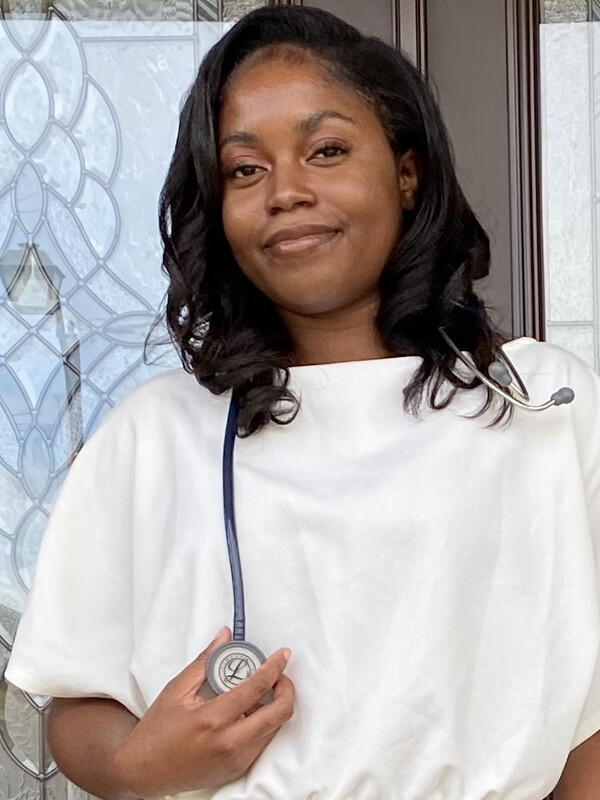
Bennett, Falan
Personal Background
I grew up in Toronto and Brampton, and completed my undergraduate studies at York University where I earned two BSc (Hons) degrees in biology and psychology. A deep interest in the fundamental causatives of health disparities pushed me to pursue a Master of Public Health degree at the University of Toronto. As a master’s student, I learned the basis of interrogating health inequities through quantitative approaches underpinned by social theory. I am pursuing an MD- PhD to address the chasms in structural determinants of health affecting Black populations- particularly Black women. The joint program provides the unique opportunity for me to bridge population level health determinants and clinical practice. Outside of scholarly pursuits, I enjoy cooking and spending as much time as possible in Jamaica.
Research Interests
During my PhD, I am interested in examining the nexus between the structural determinants of health, social policy, and Black Canadian women’s reproductive and maternal health outcomes through a social epidemiological lens.
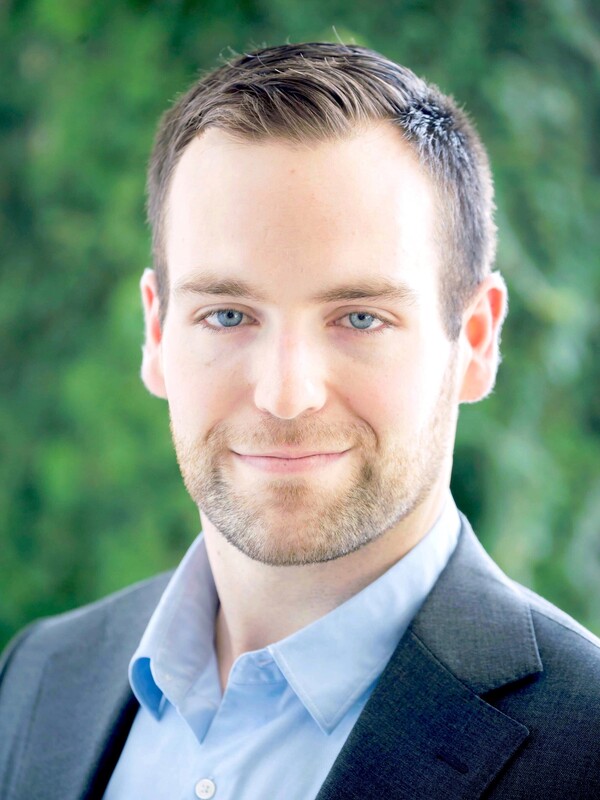
Botts, Steven
Supervisors: Dr. Kathryn Howe (Division of Vascular Surgery, University Health Network) and Dr. Jason Fish (Toronto General Hospital Research Institute, University Health Network)
Graduate unit: Institute of Medical Science
Personal Background
I completed my HBSc in Biology and Psychology and MSc in Biology at McMaster University, where I investigated water pathogens and microbial signatures for water pollution in the Niagara Region. My interest in microbiology and public health led me to The Hospital for Sick Children in 2016, where I used omics-based methods to characterize the gut microbiome during the onset and treatment of gastrointestinal diseases and examined the impact of diet on intestinal health. During this time, I worked closely with physician-scientists who underscored the importance of translational medicine and inspired me to follow in their wake. I was drawn to the University of Toronto because it is at the forefront of translational research and excellence in medical training. Outside of research, I enjoy competitive powerlifting, cooking, and podcasts discussing fitness, philosophy, and everything in between.
Research Interests
I am currently interested in the endothelial cell dysfunction underlying aortic aneurysm pathogenesis, with a specific focus on extracellular vesicle-derived microRNAs as novel biomarkers and therapeutic targets. I am enthusiastic about leveraging these findings within the areas of screening, risk assessment, and intervention to develop innovative strategies for improving health outcomes.

Chin, Allysia
Personal Background
Hailing from Scarborough North, Allysia is a first-year MD/PhD student at the University of Toronto. After obtaining her BSc in Chemical Biology from McMaster University, she returned to Toronto to work as a research technician in the lab of Prof. Molly Shoichet. Here, she flexed her chemistry muscles to engineer biomaterials for disease modelling by leveraging click-chemistry to solve biological problems. She also had a quick stint in industry, where she worked as a science intern at a biotechnology company, AmacaThera, where she formulated and analyzed drug delivery vehicles.
Outside of liking organic chemistry way too much, Allysia takes pride in being multifaceted - just like her hometown of Scarborough. She champions equity outreach, mentorship, curly hair routines, gnarly ear piercings, chicken nuggets, and breaking glass ceilings.
Research Interests
Allysia is looking forward to beginning the PhD phase of the program. Her research interests include tissue engineering, synthetic biomaterials for cancer modelling/drug delivery, and elucidating the mechanisms of cancer stem-like cells in propagating aggressive tumours.
D'Cruz, Robert
Supervisor: Dr. Norman Rosenblum
Graduate Unit: LMP
Personal Background
I completed my undergraduate degree in biology at a small school in the United States called St. Bonaventure University, where I attended on a soccer scholarship and competed as an NCAA Division 1 student-athlete. In my later years of my undergraduate degree, I began to get involved and interested in research through working with some of my professors. After graduating in 2014, I came back home to Canada. I elected to continue doing research at the University of Toronto, where I completed a Master’s degree with the Institute of Medical Science. Working and learning from clinician-scientists throughout my Master’s experience drove me to pursue the MD/PhD program at the University of Toronto.
Research Interests
My past research focused on the molecular mechanisms of skeletal muscle atrophy. Moving forward, I am interested in understanding cellular signaling networks involved in renal development. As I continue in my academic and medical training, I look forward to working in the University of Toronto network. I am confident that the MD/PhD program here will nurture my interests and help prepare me as I move forward in my career.
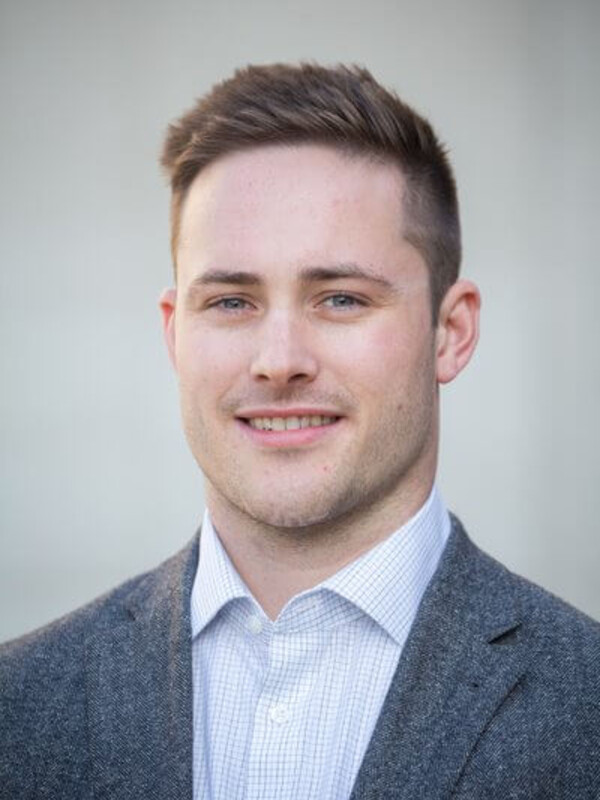
De Snoo, Mitch
Supervisor: Dr. Paul Frankland
Graduate Unit: Institute of Medical Science
Personal Background
I completed my Bachelor of Science in Biomedical Engineering at Drexel University in Philadelphia, PA and my Master of Science in Laboratory Medicine and Pathobiology at the University of Toronto. My MSc was in the lab of Dr. Suneil Kalia where I studied the role of co-chaperone proteins in the regulation of a mitochondrial quality pathway that is known to be dysfunctional in familial, early-onset forms of Parkinson’s disease. Studying under Dr. Kalia, a clinician-scientist, exposed me to the possibility of practicing clinical medicine while also researching fundamental disease processes and potential future treatments which inspired me to pursue the MD/PhD program at the University of Toronto. Outside of research I play lacrosse professionally for the Toronto Rock of the National Lacrosse League.
Research Interests
My research interests are in neuroscience and neurodegenerative disease. I will be pursuing my PhD with Dr. Paul Frankland where I will investigate the biological mechanisms underpinning memory formation, maintenance, retrieval, and transience.

Dent, Anglin
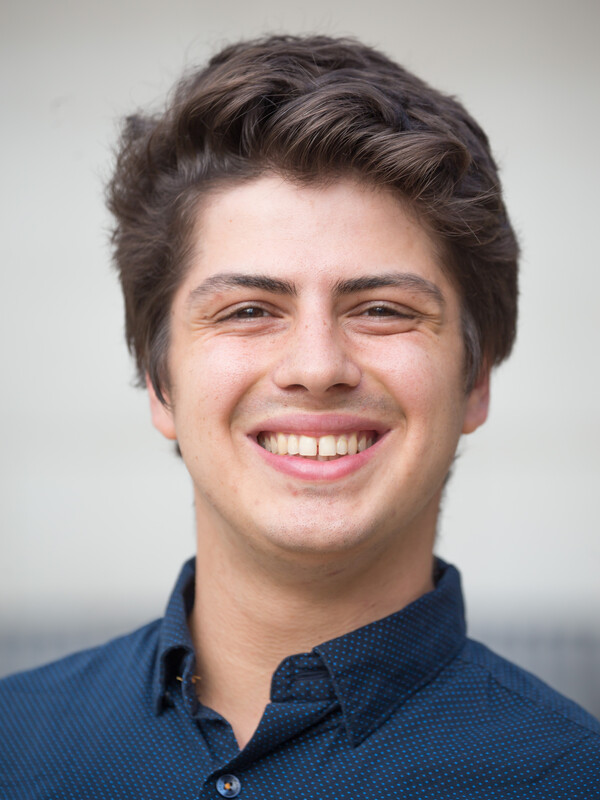
Dhaliwal, Alex
Supervisor: Dr. Gang Zheng
Graduate unit: Department of Medical Biophysics
Personal Background
I was raised in St. Catharines and completed by undergraduate degree at McMaster University in Integrated Sciences. Over the course of this training, I developed an active interest in research, working in labs dedicated to basic neuroscience and biophysics. I completed my degree with a triple minor in Biochemistry, Physics, and Mathematics. I chose the MD/PhD program at the University of Toronto as it provides me with an opportunity to work at the interface of medicine and research at an institution that prioritizes rigourous science and medical innovation.
Research Interests
The majority of my past research focused on elucidating membrane-mediated drug interactions using X-ray diffraction and Molecular Dynamics simulations. My current research extends these principles of using physical modalities as a probe for drug design and development – I am working to overcome obstacles in cancer nanomedicine delivery using an in situ ultrasound-triggered microbubble-to-nanoparticle conversion platform. I am passionate about developing novel techniques to better understand and tackle problems at the frontier of oncology, and I am confident that the MD/PhD program will help me cultivate my interests and contextualize my work.
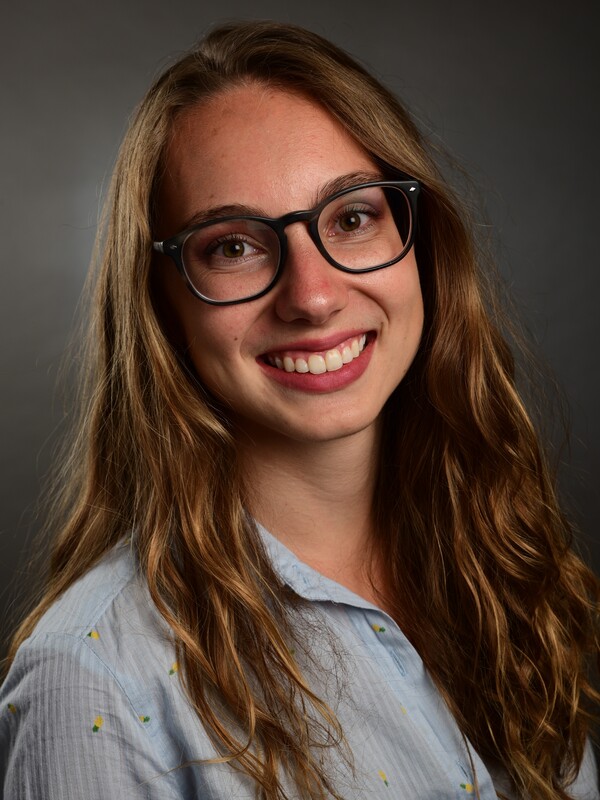
Drupals, Megan
Supervisor: Dr. Michael Salter
Graduate Unit: Department of Physiology
Personal Background
I completed my BSc in Biology at the University of British Columbia, a few (thousand) kilometers away from my hometown of Montreal. Through the co-operative education program at UBC, I discovered a love for exploring pain pathways using molecular and genetic approaches. The MD/PhD program at the University of Toronto seemed like an ideal fit for my goal of strengthening our understanding of pain and translating these scientific discoveries into improved therapeutics for people suffering from chronic pain. Outside the lab, I love making time to bury my nose in a good book and spending time with friends and family.
Research Interests
My research focuses on understanding the physiological impact that early-life pain exposure has on infants. Using a combination of genetic, molecular and electrophysiological tools, we are attempting to unearth where the “memory” of this pain is being stored, and how that may be changing future pain responses and affecting nervous system development.
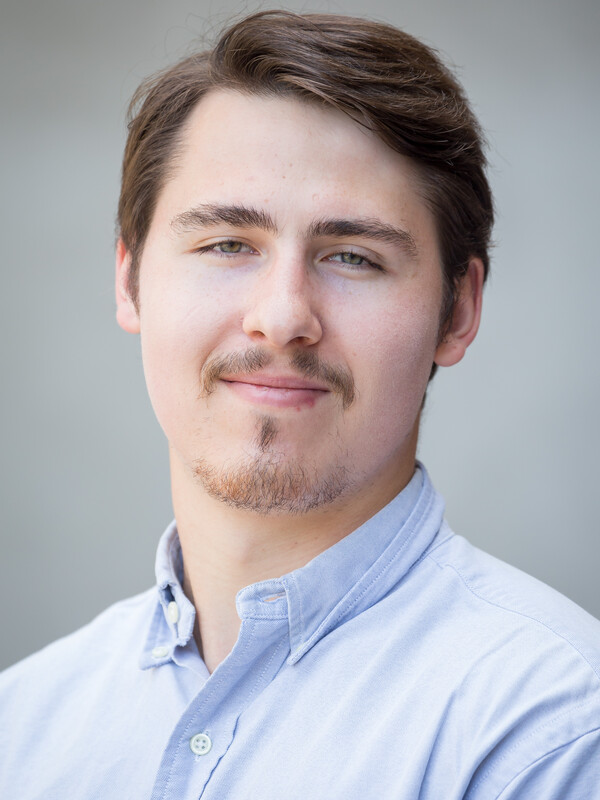
Elias, Gavin
Supervisor: Dr. Andres Lozano (Toronto Western Hospital, Neurosurgery)
Graduate unit: Institute of Medical Science
Personal Background
A citizen of the transatlantic, I was born in Canada but spent much of my childhood in the UK. After returning to Canada for high school, I completed my undergraduate in psychology and neuroscience at University of Oxford. Outside of academia, my interests include arresting film and television, good food, and long dog walks.
Research Interests
I have been involved in neurosurgery research at Toronto Western Hospital since 2012. My research pursuits have predominantly centered on deep brain stimulation (DBS) and its exciting applications to circuit-based neurological and neuropsychiatric disorders. Currently I am focused on a variety of neuroimaging approaches to DBS in an effort to refine patient selection, surgical targeting, and programming and to further elucidate the treatment’s mechanism of action. I am also involved in a novel clinical trial that will hopefully identify new conditions that may benefit from DBS.
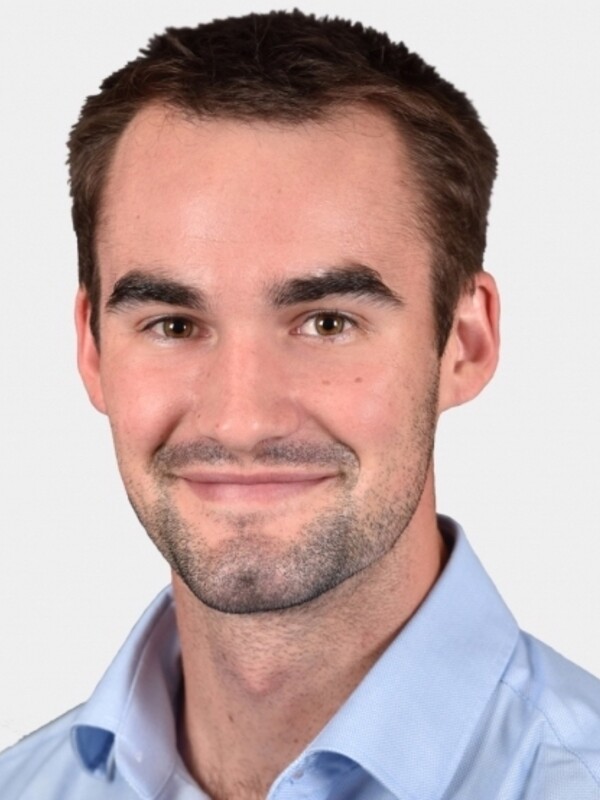
Erickson, Anders
Supervisor: Dr. Michael Taylor
Graduate Unit: LMP
Personal Background
I grew up in Boston and Sydney and came to Canada for my undergraduate degree in biochemistry at McGill University. In my free time I'm a wannabe powerlifter and polyglot. Choosing medicine was a bit of a no-brainer for me: I was absolutely fascinated by what I was learning in my undergrad physiology courses, and I knew from pumping gas in high school that the gratification I got from service to others (even if it was just pumping gas) was worth pursuing through medicine. Choosing science was probably in the cards for me from early on, too. My mum likes to remind me of a time when I was playing in the bath as a kid where I inverted, then submerged, a plastic cup and said "Look, mum! Pressure!" which I was probably reciting from Bill Nye. That I wanted to pursue a career as a clinician-scientist was a more recent discovery. I've had some excellent mentors as a medical student at UofT who've inspired me immensely. In working with them, I've found a hunger to investigate clinical questions that has led me to happily burn the candle. I feel immensely lucky to have been given the opportunity to transfer into the MD/PhD program and pursue a life as a clinician-scientist.
Research Interests
I've loved conducting epidemiologic research in neuro-oncology: it's how I learned I wanted to be a clinician-scientist. I'm excited to dive further into neuro-oncology during my PhD and into the realms of basic science and bioinformatics.
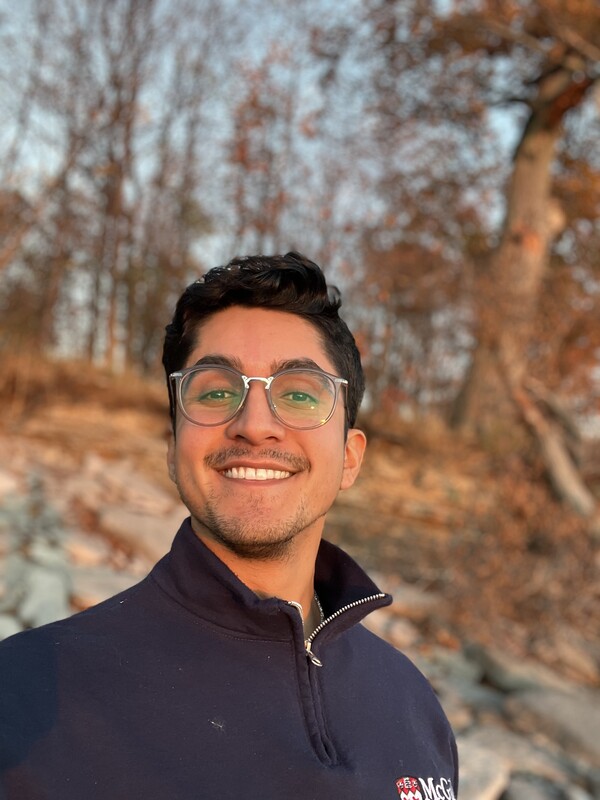
Fallahi, Armaan
Personal Background
I grew up in Richmond Hill, Ontario, with a diverse background influenced by my Iranian and Kenyan heritage. From an early age, I had a deep curiosity for learning, from the captivating world of dinosaurs and sharks to the mysteries of the brain. This passion led me to pursue a B.Sc. in neuroscience at McGill University, graduating in 2021. During my time at McGill, I had the privilege of engaging in research experiences at the Douglas Mental Health Institute and the Montreal Neurological Institute, under the guidance of Drs. Gustavo Turecki, Cecilia Flores, and Edward Fon. These experiences provided me with a comprehensive understanding of molecular, cellular, and behavioral neuroscience across various models. In 2020, I took an exchange term at University College London where I gained computational skills in the Machine Learning and Neuroimaging laboratory. Alongside my academic pursuits, I am deeply committed to advocating for mental health, a cause that holds great importance to me.
During my free time, I indulge in my passions for electronic music, weightlifting, running, calisthenics, engaging in philosophical discussions, tweeting, and savoring halal cuisine.
Research Interests
My research interests lie in unraveling the mechanistic complexities of neuropsychiatric diseases, ranging from the molecular to circuit level, and their relationship to behavior in pre-clinical models. For my PhD, I am eager to utilize advanced systems neuroscience techniques, including genetic engineering, opto/chemogenetics, calcium imaging, and molecular biology, to explore the underlying processes of health and disease processes and their parallels in humans. In the summer of 2023, I am pursuing research in the laboratory of Dr. Sheena Josselyn investigating early-life stress and its relationship with amygdalar circuits related to fear, anxiety, and persistent memory.
.
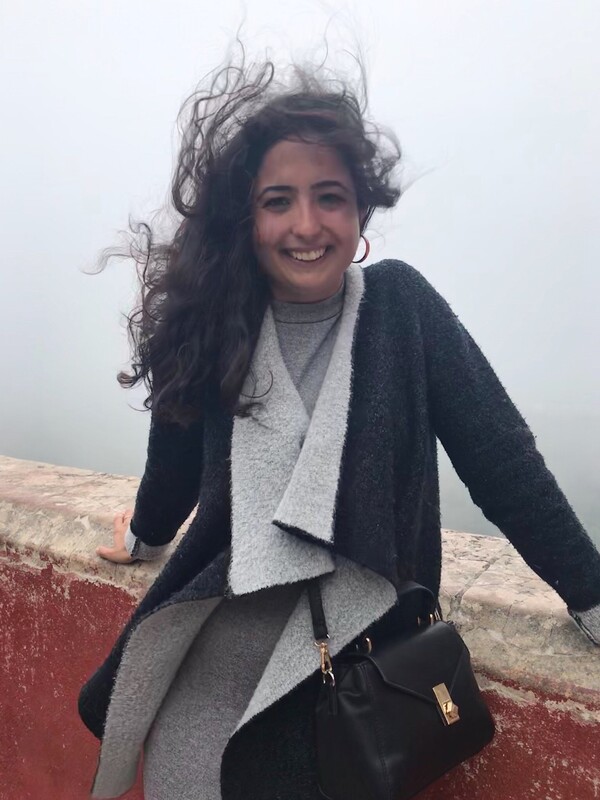
Florescu, Alex
Supervisor: Dr. Jennifer Gommerman
Graduate Unit: Immunology
Personal Background
Alex spends most of her time asking to pet other people's dogs and breaking her pinky finger playing basketball. Otherwise, you can find her in the lab talking about her favourite cells, B cells. Alex first fell in love with immunology during her Bachelor of Health Sciences at McMaster University, during which time she studied the role of germinal centres in the generation of immune memory to peanut allergens.
Research Interests
For her PhD, Alex will be studying the role of gut-derived IgA plasma cells in neuroinflammation, with a particular interest in looking at immune populations in the meninges of the brain.
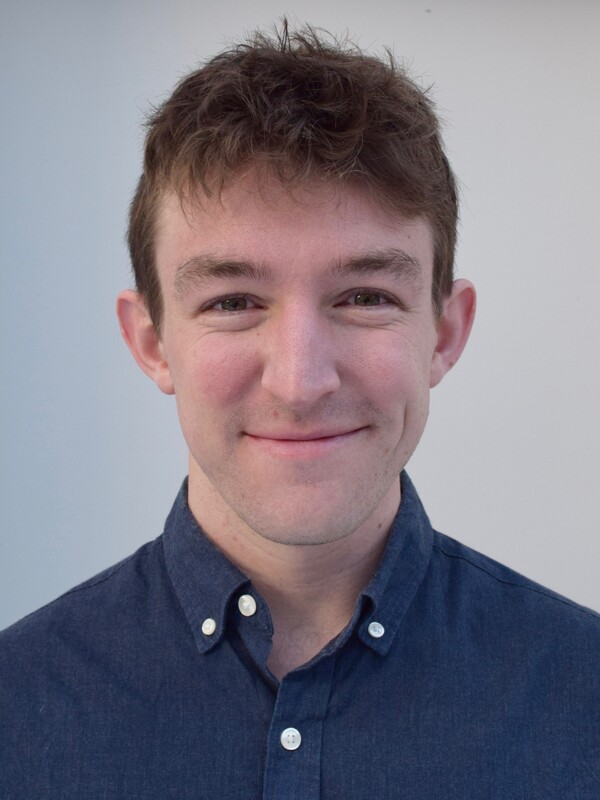
Friesen, Erik
Supervisor: Paul Kurdyak (CAMH)
Graduate Unit: Institute of Health Policy, Management & Evaluation
Personal Background
I was born and raised in Winnipeg, MB before moving to Toronto to pursue a BSc in Neuroscience (’16) and MSc in Laboratory Medicine & Pathobiology (’18) at the University of Toronto. Throughout my time in Toronto I have had the privilege of working with a number of physician-scientists who have facilitated my exploration of a broad range of research topics and methodologies, ranging from epidemiological research in the realm of heart transplantation to basic laboratory research on the pathophysiology of Parkinson’s disease. These experiences, and the excellent mentorship I received within them, allowed me to realize the value of combining medical research with clinical practice and ultimately inspired me to join the MD/PhD program. Outside of school and research I enjoy travelling, hanging out in parks with my dog and experiencing remote parts of Canada through canoeing and cycling.
Research Interests
For my PhD research I am transitioning into a project that focuses on the spatial epidemiology of addiction across urban, rural and remote Ontario, with a particular focus on the harms associated with alcohol use disorder. While this is a new field of research for me, it combines my long-standing interest in neuroscience and psychiatry with a more recent interest in understanding the barriers that rural Canadians face when trying to access addictions and mental health services. Through this research, I hope to uncover the factors that predispose rural and remote communities to an increased incidence of substance-use-related morbidity and mortality with the ultimate goal of informing public health measures to reduce this burden.
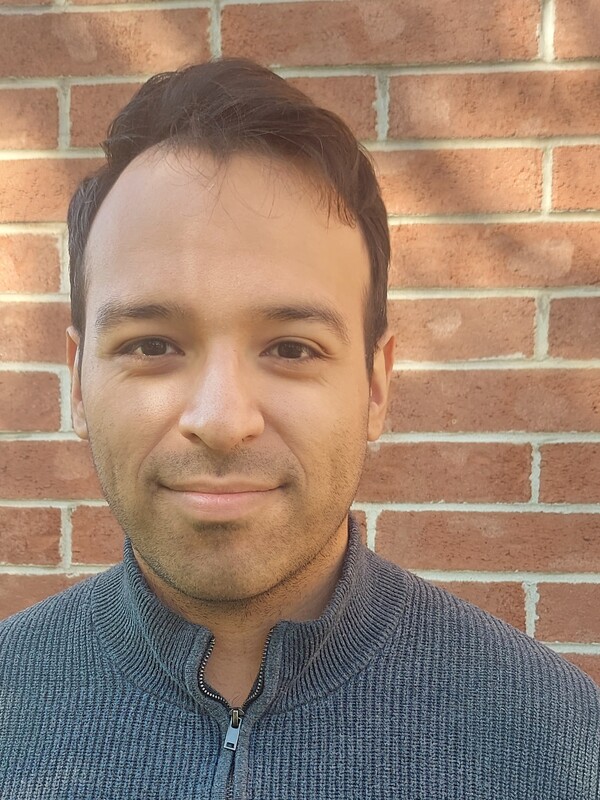
Garrido, Nicholas
Personal Background
I was born and raised in Toronto. I completed an Honours Bachelor of Science degree in Human Biology and a Master of Science degree at the University of Toronto. I developed a passion for molecular biology under the supervision of Dr. Dan Riggs in my undergraduate studies. In my master’s, I was exposed to various high-throughput technologies that were being used to identify susceptibility factors of psoriatic disease in Dr. Dafna Gladman’s lab. Outside of academics, I spend a lot of time coaching and playing soccer! I also hike, fish, listen to Latin American music and try playing it on my accordion.
Research Background
In my PhD, I hope to get exposure to as many molecular biology techniques as possible. I’d like to become competent in many types of CRISPR applications and build a strong foundation to tackle important biological questions in the realm of rare pediatric diseases.
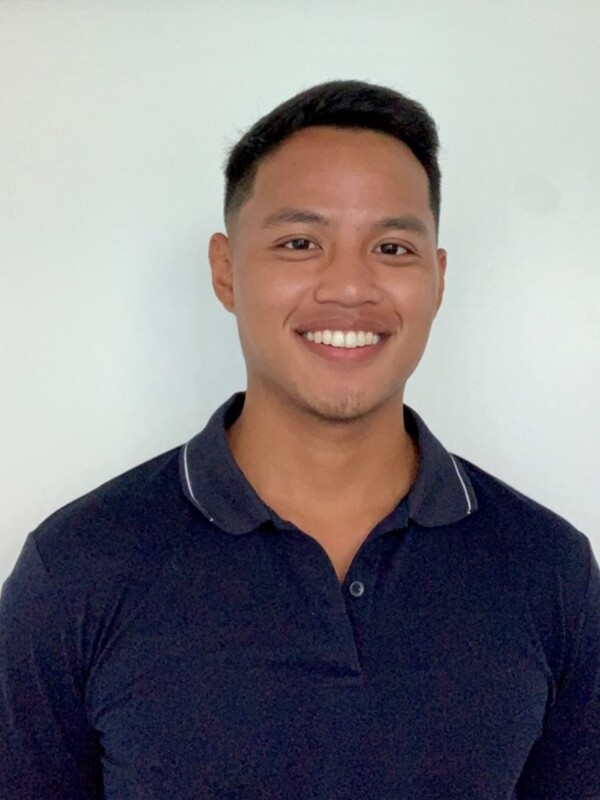
Gascon, Bryan
Personal Background
I was born in the Philippines and immigrated to Canada when I was four years old, where I was raised in a small and diverse neighborhood in Scarborough. I attended local public schools and went on to earn both an undergraduate degree in global health and a Master of Science degree in cancer psychiatry research at the University of Toronto. It was during these degrees where I was privileged enough to be mentored by several physician-scientists, both locally and internationally, through a wide array of human-centred research projects.
The pursuit of my research endeavours across the fields of infectious diseases to psychiatry thus far have all been inspired, in a cyclical way, by personal life experiences that have been tightly bound to who I am, where I come from, and the communities that I find special. This cyclical research inspiration, which embodies the very essence of what a physician-scientist does, is what ultimately drew me to the MD-PhD program. By developing a dual medical and research expertise, I aspire to advance patient care, specifically by bringing the research bench closer to the bedside.
When I’m not doing medicine or research, I’m probably thinking about pandas, playing beach volleyball, working out, or finding an excuse to make cheesy Doritos nachos.
Research Interests
For my PhD, I am interested in learning how to generate robust evidence related to implementation of health interventions in low- and middle-income settings – settings that are too often unheard and deprioritized in research. I plan to leverage qualitative and quantitative methods to identify barriers and facilitators to successful implementation of healthcare interventions and evaluate its clinical and implementation effectiveness on a global scale.
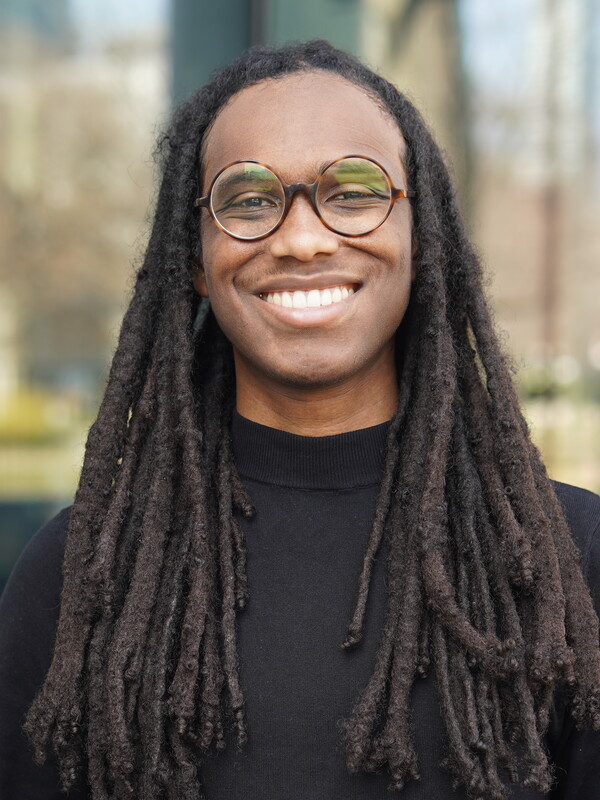
Gilmore, Julian
Personal Background
Born and raised in Toronto, I completed my Bachelor’s of Science at McMaster University, studying chemical biology. During my time at McMaster, I developed an interest in infectious disease research, a subject which I pursued further in my MSc in U of T, investigating the safety of antiretroviral therapy in pregnancy. Throughout my MSc, I longed to connect my work in the lab to improvements at the bedside—a desire which ultimately led me to the MD/PhD program, where I hope to develop skills to improve chronic infectious disease prevention and management. I am also passionate about approaching research questions through a lens of health equity, and hope in the future to contribute to equitable distribution of vaccines, therapeutics, and other health resources to communities where they are most needed.
Outside of academics, you can find me exploring the world on my bike and patiently waiting for the Raptors to win another championship!
Research interests
I’m interested in understanding the pathophysiology of HIV and other chronic infections, and ultimately hope to contribute to the development and characterization of therapeutics and vaccines for the management of chronic infectious disease.
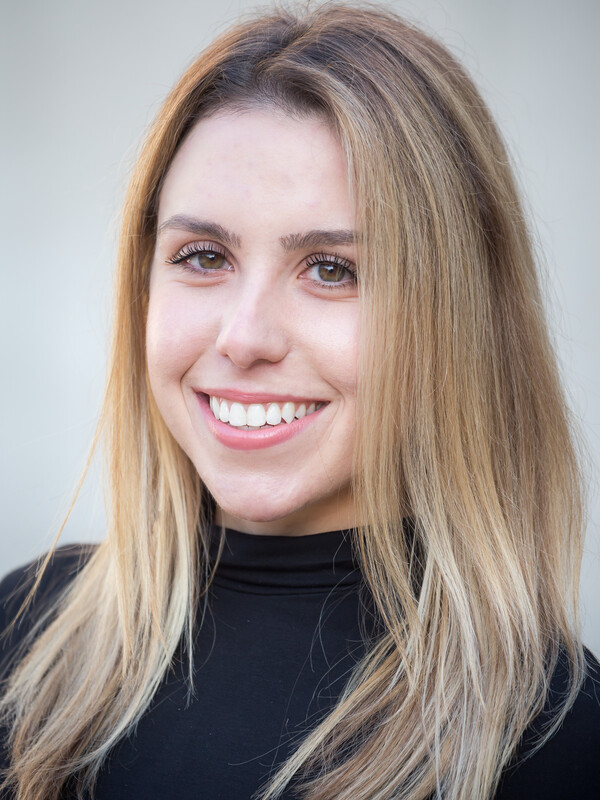
Giovino, Camillia
Supervisors: Dr. David Malkin and Dr. Ran Kafri
Graduate Unit: Department of Medical Biophysics
Personal Background
I completed my undergraduate degree in Life Sciences at the University of Toronto. I became involved in research following my second year of undergraduate studies; I studied chemoresistance in head and neck cancer in the laboratory of Dr. Fei-Fei Liu for two years through summer and course-based thesis projects. Upon completion of my undergraduate studies, I pursued Master’s studies in the Department of Medical Biophysics at U of T. I worked under the supervision of Dr. David Malkin and Dr. Ran Kafri, investigating the role of the tumour microenvironment in cancer onset in the context of Li-Fraumeni Syndrome. With a keen interest in both science and medicine, I decided to pursue MD/PhD training at U of T after completion of my Master’s degree.
Research Interests
Both my past and current research interests are in the areas of molecular and cellular biology of cancer, and more recently, with my Master’s work, in genetic predisposition to cancer. Moving forward, for my PhD studies, I will continue to work under the supervision of Dr. David Malkin and Dr. Ran Kafri on a related project where I will be investigating cancer chemoprevention in the context of Li-Fraumeni Syndrome.
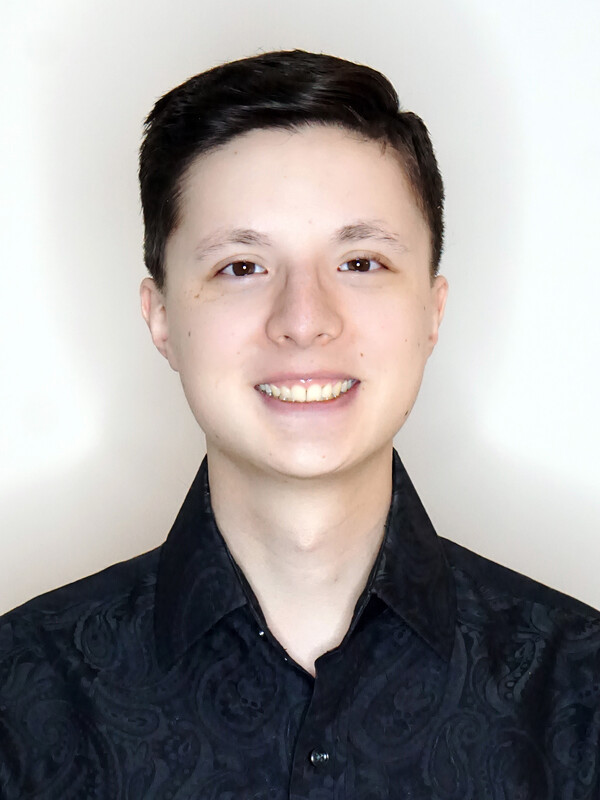
Grabke, Emerson
Supervisors: Dr. Masoom Haider & Dr. Babak Taati
Academic Unit: BME
Personal Background
I grew up in Toronto with strong interests in both helping people and building things. I pursued a BASc in Engineering Science at the University of Toronto with focus on Robotics Engineering to unite these desires. During a summer research placement at Osaka University I witnessed how engineered devices can benefit medicine and the point of care. Upon returning to Toronto I pursued a MHSc in Clinical Engineering in Toronto and subsequently the MD/PhD program in order to further unite engineering and the clinical bedside. In my spare time I play the violin, I love to dance, and I normally can be found tinkering with technology.
Research Interests
My research interests are primarily around the development of engineering devices to benefit the point of care either by diagnostic or therapeutic intervention. I am particularly interested in integrating the advancements of modern computing with healthcare.
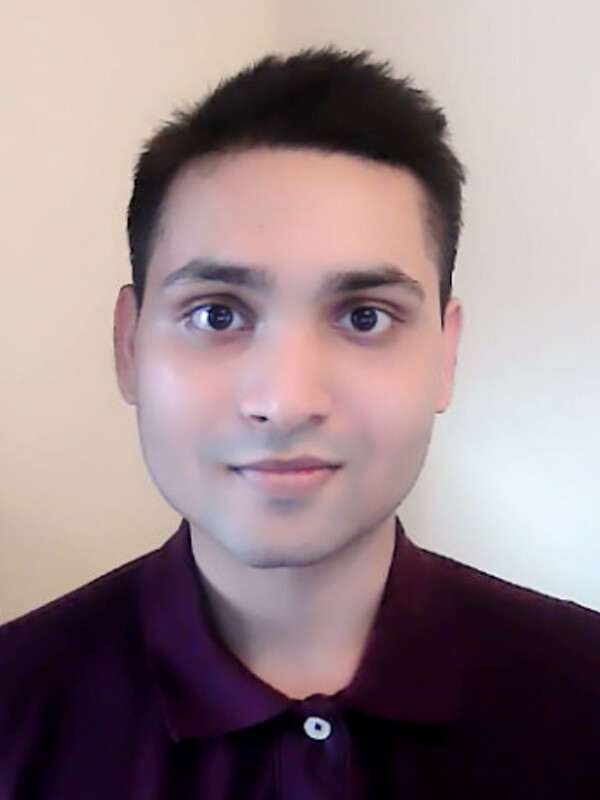
Haider, Syed (Shahan)
Supervisor: Dr. Daniel Schramek
Academic Unit: Molecular Genetics
Personal Background
I completed my undergraduate degree in Molecular Genetics at the University of Toronto. Throughout this time, I worked at the Donnelly Centre in Dr. Mikko Taipale’s lab, initially studying rare diseases and later focusing on developing methods to identify membrane receptors for secreted proteins. In addition to biomedical research, I conducted clinical research at Princess Margaret Hospital, evaluating the effectiveness of a biopsychosocial intervention in improving the quality of life of older cancer patients. These research projects, paired with my personal experiences and volunteer work in underserved areas across Toronto, drew me towards the combined MD/PhD program. Pursuing a combined doctorate, I hope to merge my interests in fundamental research and patient care while serving my broader community.
Research Interests
For my PhD, I am interested in using single cell technologies to further our understanding of cancer biology and guide personalized therapeutic development. However, since I am just beginning my MD/PhD journey, the details of my project are yet to be formalized.
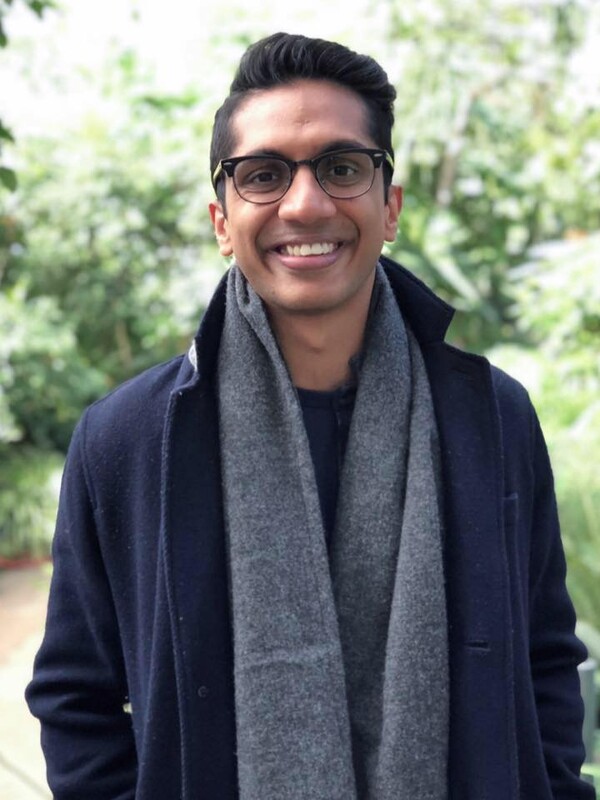
Harish, Vinyas
Supervisor: Dr. Laura Rosella (Population Health Analytics Laboratory, Dalla Lana School of Public Health)
Graduate unit: Institute of Health Policy, Management, and Evaluation (Clinical Epidemiology & Health Care Research)
Personal Background
I grew up in Toronto, ON as a first-generation immigrant from India. As an undergraduate student in Biomedical Computing at Queen’s University, I credit two major experiences for inspiring me to undertake training as a clinician-scientist. My passion for translational clinical engineering was cultivated over three years of work in Dr. Gabor Fichtinger’s Laboratory for Percutaneous Surgery. Equally so, my time living and working in Guyana as a peer health educator with Queen’s Health Outreach, a completely student-run registered charity, fostered a passion for global health. With a desire to connect patients around the world with the research and innovations they need most, I was drawn to joining the MD/PhD program at the University of Toronto. By coming home for this stage of my education, I have the distinct privilege of training in and serving the communities that I grew up in. Outside of my academic life, I am fond of travel, photography, political satire, and podcasts.
Research Interests
I hope to stand at the confluence of knowledge and expertise between the fields of clinical medicine, artificial intelligence, and biosecurity. For my doctoral research, I am interested in the application of machine learning methodologies to the creation of a global early warning system that predicts the emergence and spread of infectious diseases. Given today’s social commentary on ethics around big data, I also plan to examine broadly the ethical implications of artificial intelligence as it's used in public health decision making systems.
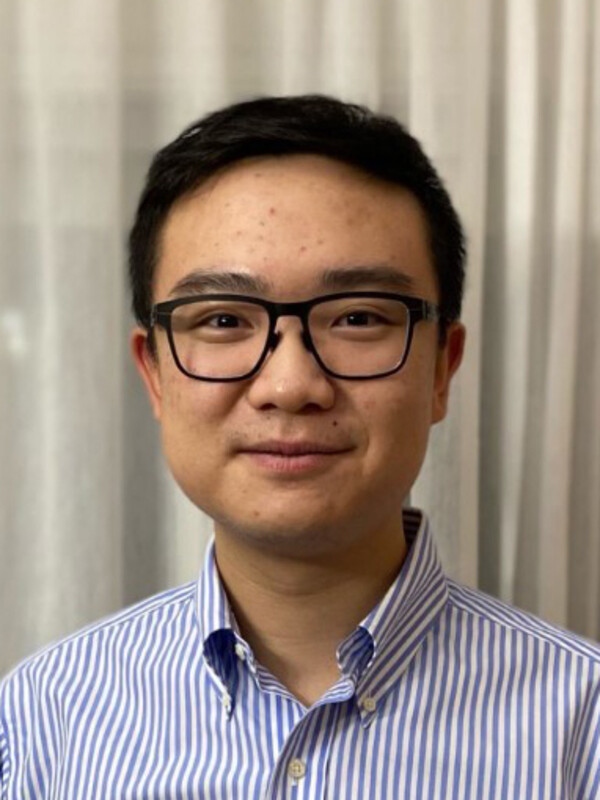
Huang, Richard
Personal Background
I grew up in Toronto and the surrounding suburbs before completing my undergraduate and master's degree at the University of Toronto. My experiences in research involved working on projects focusing on DNA repair mechanisms and molecular pathways that are differentially regulated in cancer models. I am grateful to have been mentored by my supervisors and everyone in the lab during these experiences, as well as for the opportunity to join the MD/PhD program to pursue clinical and research training. Outside of the lab, I have a passion for music (particularly the piano), baking, history, and reading.
Research Interests
I am interested in investigating the molecular pathways that are implicated in cancer pathogenesis for my PhD. In particular, I hope to learn more about how metastasis occurs, in addition to the factors that are involved in tumour progression and the development of resistance to cancer therapies.
Huo, Lia
Supervisor: Molly Shoichet
Graduate Unit: Institute of Medical Science
Personal Background
I was born in Germany and grew up there until I immigrated to Canada at the age of 14. Having been exposed to different cultures, I grew to believe that the greatest gift of meeting new people are the stories, perspectives, and knowledge they can impart on me. It's this same curiosity that has led me to pursue an academic path. I kept asking why and how — so I was naturally drawn to the sciences and ended up studying neuroscience at McGill. While doing research on neurodegenerative diseases in a neurosurgeon’s lab, I discovered an interest in patient interactions and disease management. Through my PI’s mentorship, I realized what a unique lens clinician scientists have. Their research questions are guided by clinical perspectives, and their clinical decisions are informed by research. It is this realization that motivated me to pursue an MD/PhD training.
I couldn’t be more excited to pursue this dual degree at UofT, the largest research-based university in Canada. Besides immersing myself in its stimulating academic environment, I intend to keep forming connections that will challenge me intellectually and will join me in my spontaneous escapades, which have led me to trying a variety of cuisines, unicycling, cliff jumping, and painting. I have a particular interest in learning languages so anyone who can teach me something in another language is an automatic new friend!
Research Interests
I am doing my PhD in Dr. Molly Shoichet’s lab, where polymeric designs are developed for medical application. I’m interested in studying a hydrogel delivery system that would allow for targeted delivery of proteins or nucleic acids to the eye in order to rescue rod and cone degeneration. This research aims to generate therapeutic measures against blindness that develops as a consequence of many retinal dystrophies.
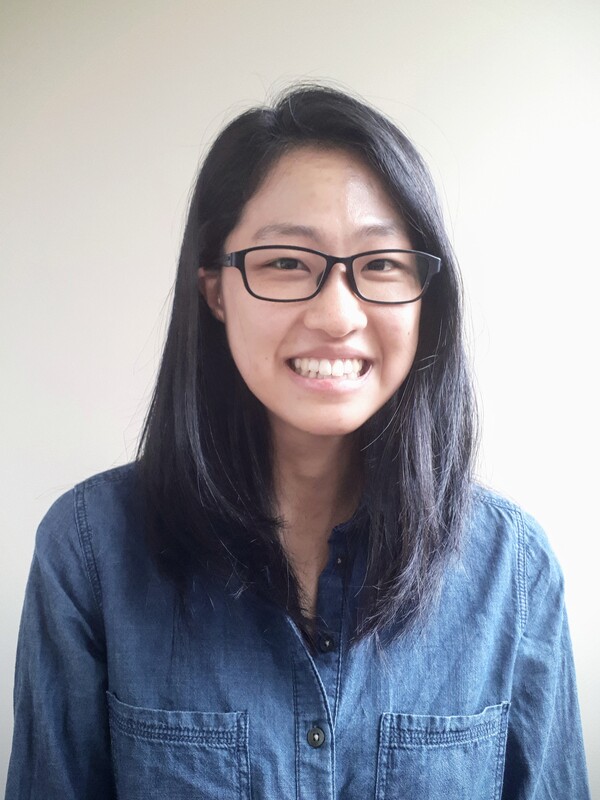
Jeong, Danielle
Supervisor: Dr. Freda Miller at Sick Kids Hospital (Department of Neurosciences & Mental Health)
Graduate unit: Institute of Medical Science
Personal Background
I grew up in a small suburban town of Langley, B.C., which a unique exposure to concepts of global health through my trips to Haiti and Swaziland. With medicine in mind, I attended Simon Fraser University for undergraduate and Master’s degrees in Biomedical Physiology. My passion for medical research sprouted while studying the functional and structural aspects of voltage-gated ion channels underlying cardiac arrythmias, under the supervision of Dr. Tom Claydon. The realization and appreciation of how research augments my goal to serve those who are ill as a physician has since led me to the MD/PhD program at University of Toronto.
Research Interests
My research interest involves understanding neural stem cells in the context of neurogenesis during embryonic development as well as in the adult brain. I would like to examine the interplay of cell-intrinsic mechanisms and extrinsic factors that determine the biology of these cells, which can offer insights on normal and pathological development.
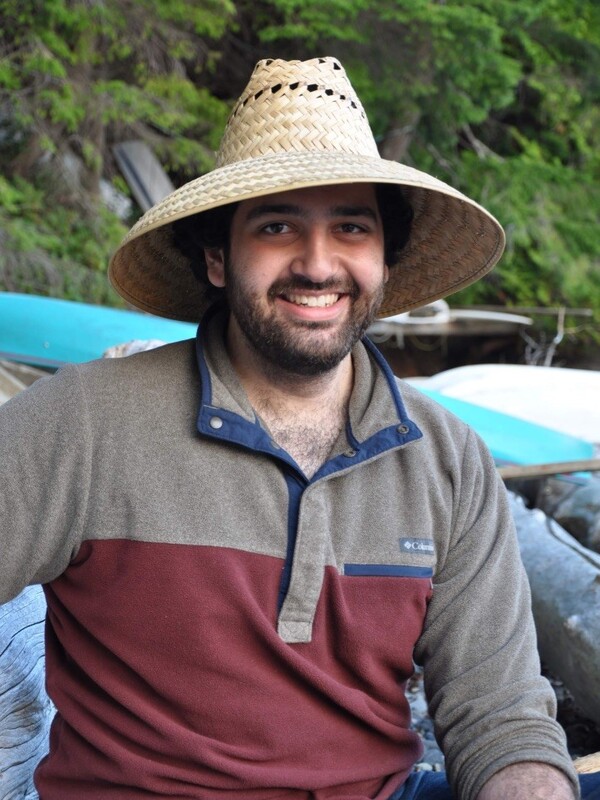
Karimi, Ryan
Personal Background
I was raised in Vancouver, British Columbia, and I have had the chance to live in BC, Saskatchewan, Quebec, New Brunswick, and now Ontario. I completed my undergraduate degree in Physics and Chemistry at the University of British Columbia. I have always been interested in the study of living things, and the molecular basis of life. I was inspired to pursue Physics and Chemistry after stumbling on a paper deriving a statistical mechanics description of self-replicating molecular systems (such as DNA). My interest in medicine was sparked by my work with the Vancouver Red Cross throughout high school and undergrad. Outside of the classroom and lab, I enjoy playing guitar, creative writing, swimming, and trying to cook new foods (with varying degrees of success).
Research Interests
I am broadly interested in protein biochemistry, and much of my undergraduate research focused on enzymatic catalysis and protein engineering to uncover what proteins can accomplish in isolation. My undergraduate thesis focused on engineering glycosidase enzymes with unnatural substrate specificities using directed evolution in the lab of Dr. Stephen Withers at UBC.
I am now interested unraveling what proteins can do together, and how changes in the formation and dissociation of transient protein complexes in cells can give rise to the macroscopic cellular behaviours and morphologies characteristic of healthy and diseased tissues.
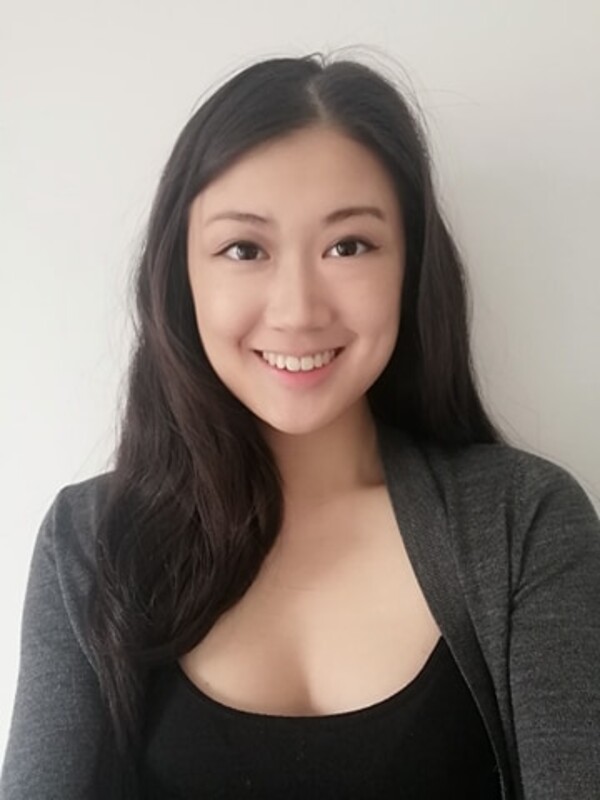
Kao, Jennifer
Supervisor: Dr. Paul Frankland (Sick Kids)
Graduate unit: Institute of Medical Science
Personal Background
I grew up north of Toronto but left the big city to pursue an undergraduate degree in a small town, at the University of Guelph. It was there I discovered a love for research, when I became involved in using small RNA technology in bovine in vitro fertilization and canine spinal cord disease (Dr. Jonathan LaMarre, Ontario Veterinary College). These wildly different research experiences left me with the desire to marry the two fields and pursue neurodevelopment in my Master’s Degree at the University of Toronto (Dr. Phedias Diamandis). My thesis used computational proteomics to profile fetal brains during neurogenesis and model human neurodevelopment using cerebral organoid technology. These experiences solidified my decision to commit to research for the long haul and apply to the MD/PhD program at the University of Toronto. I am currently in the first year of my MD, and am excited to begin the PhD portion of my double degree in the vast field of neuroscience! When I’m not in the lab/at school, I love to cook, travel alone (still trying to discover myself), and watch the Leafs (religiously).
Research Interests
I am excited to be working with Dr. Paul Frankland at PGCRL in the coming Fall! Though the details remain yet to be determined, we are specifically interested in using mouse models and cerebral organoid technology to study memory development and retrieval.

Kim, Yun
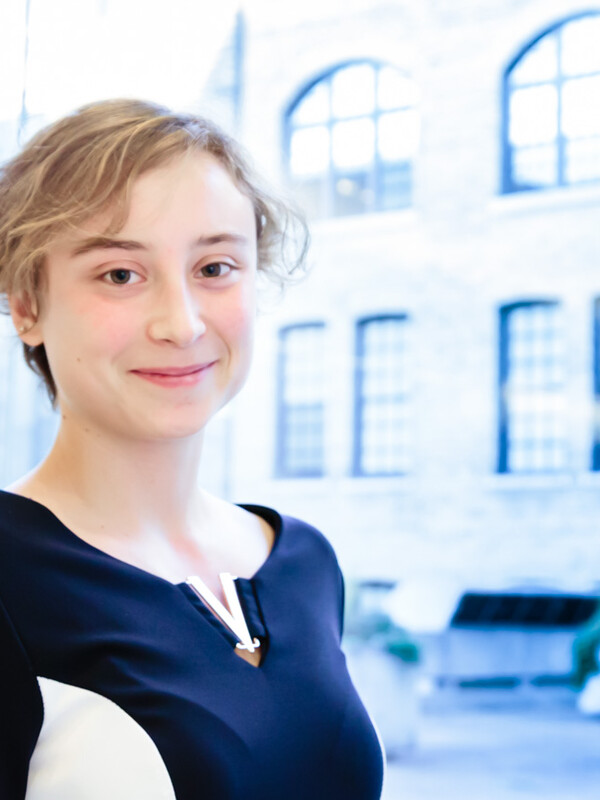
Kozlowski, Hannah
Supervisor: Dr. Warren Chan
Graduate unit: Institute of Biomaterials and Biomedical Engineering (Surgical Engineering)
Personal Background
I completed my HBSc in Laboratory Medicine and Pathobiology with minors in Nanoscience and Immunology from the University of Toronto, Trinity College. During that time I was exposed to the power of the immune system and the complexity of our innate and adaptive responses to foreign microorganisms and our own dysfunctional cells. I began to explore this further by pursing clinical research in transplant infectious disease and basic science research in HIV and Ebola. Although the body fascinated me, I was also interested to learn more about other research fields, particularly Nanoscience. I spent several months at the National University of Singapore taking Nanoscience courses and learning from experts in the field. Early on in my experiences I began to appreciate the relationship between medicine and research, and the unique role of a clinician-scientist. I believe the MD/PhD program at the University of Toronto is a great way for me to begin my career and has/will provide me with many opportunities to learn, develop and explore. Also, in the last few months I have realized and appreciated the power of mentorship even more than before. Outside of my academic life, I have been able to spend time doing things I enjoy: long distance running, traveling and baking.
Research Interests
My research interests revolve around nanodiagnostics, where we can use small particles to detect genetic material, or other molecules, in human samples to identify disease onset or outcome. I believe nanodiagnostics can be used to detect diseases sooner and improve clinical outcomes. Moreover, I believe this can be very important to developing inexpensive diagnostics for use in limited resource setting, such as third world countries.
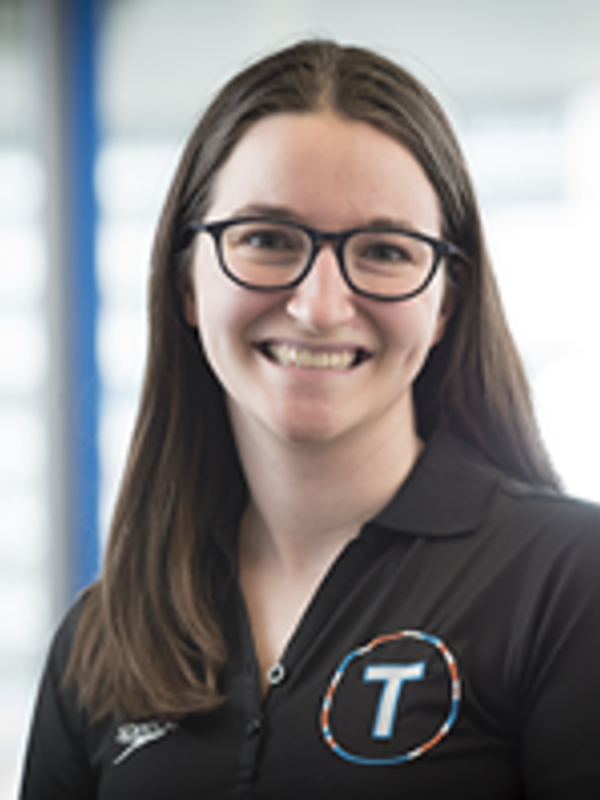
Landon-Brace, Natalie
Supervisor: Dr. Alison McGuigan
Graduate Unit: Institute for Biomaterials & Biomedical Engineering
Personal Background
I am a born-and-raised Torontonian and I graduated from the Engineering Science program (Biomedical Systems Engineering Major) at the University of Toronto in 2017. During the course of my undergraduate degree, I spent time working in a number of different research areas from vision science to cancer genetics to regenerative medicine. Fascinated with scientific discovery and its implications for medicine, I decided to pursue a career at the intersection of these two worlds, which led me to the MD/PhD program at U of T. Beyond academia, I can usually be found coaching swimming, walking my dog, or sampling one of Toronto’s many great restaurants.
Research Interests
My research interests lie in tissue engineering and cancer biology. My PhD work focuses on building 3D in vitro models to better recapitulate the tumor microenvironment and using these models to identify novel aspects of cancer biology. I am particularly interested in using these models to investigate tumor-immune interactions in the context of various microenvironmental factors.
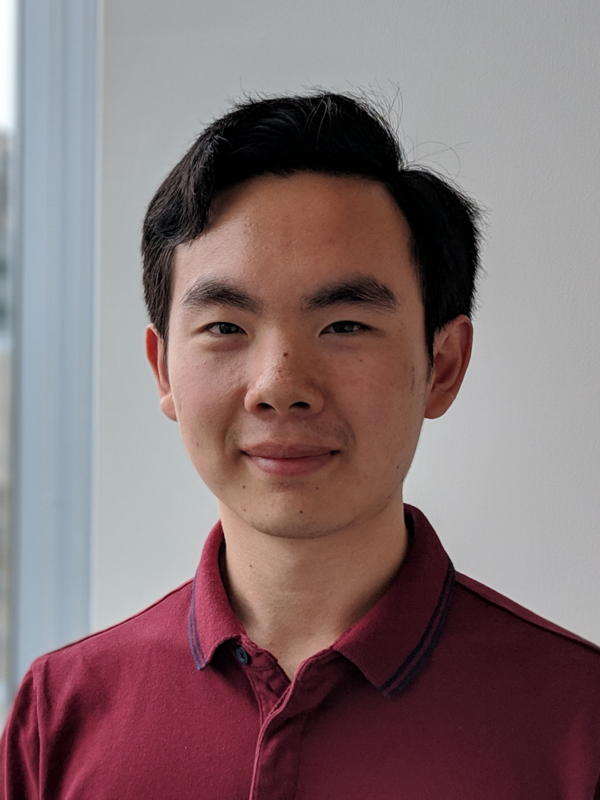
Lao, Robert
Supervisor: Dr. Mansoor Husain
Academic Unit: LMP
Personal Background
I completed my undergraduate degree specializing in Molecular Genetics at the University of Toronto. During my undergraduate years, I conducted research in Dr. Julie Claycomb’s laboratory where I investigated Argonaute/small RNA-mediated intercellular communication pathways in nematodes and the novel implications they have on host-parasite relationships and immune responses. This opportunity, in addition to my previous experiences working in clinical environments, solidified my dual passion for both medicine and fundamental scientific research. I am excited to join the MD/PhD program in order to pursue the best medical and scientific training possible! Beyond my academic interests, I am passionate about music and love to play the violin and piano. In addition, I am also mildly addicted to playing the greatest card game in existence – contract bridge.
Research Interests
My scientific curiosities have always revolved around understanding the mechanisms behind how and why things work with a special interest in the fields of gene regulation and molecular biology. I have yet to formally decide on a project as I am just beginning my MD/PhD journey. However, I am inspired to undertake research that will allow me to understand novel biology at fundamental levels and to apply these new understandings for higher levels of operation!
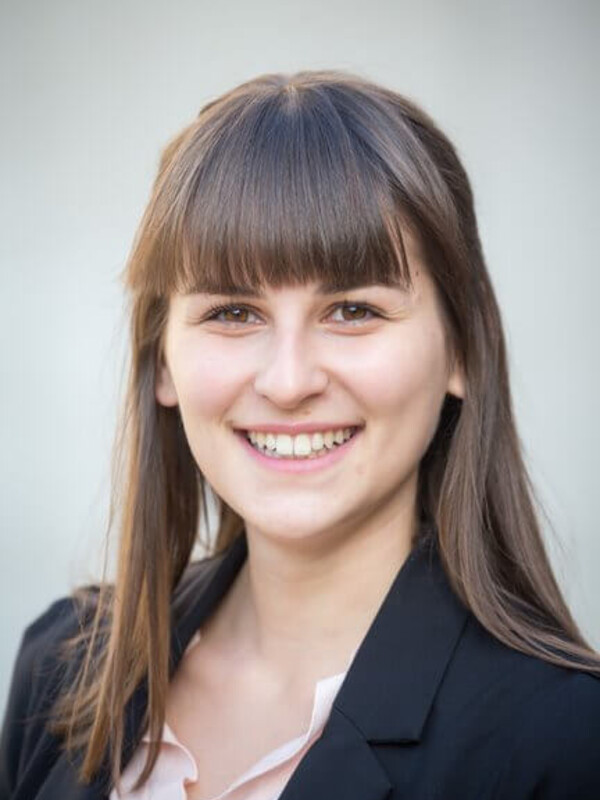
Lia, Hillary
Supervisors: Dr. Carol-anne Moulton & Dr. Frank Rudzicz
Academic Unit: IMS
Personal Background
I grew up in Richmond Hill and went to Queen’s University where I completed my undergraduate degree in Biomedical Computing. As a research assistant in Dr. Gabor Fichtinger’s Laboratory for Percutaneous Surgery my research focused on surgical technical skill acquisition and assessment from a computational perspective. The experience of working with clinicians and engineers to produce meaningful technology inspired me to pursue a career as a clinician scientist. Outside of academic life I enjoy traveling, reading, and taking pictures of my cat.
Research Interests
These days my research interests remain in the operating room but have shifted to non-technical skill and team dynamics. The details of my PhD are yet to be determined as I am completing my second year of medical school before formally embarking on PhD studies.
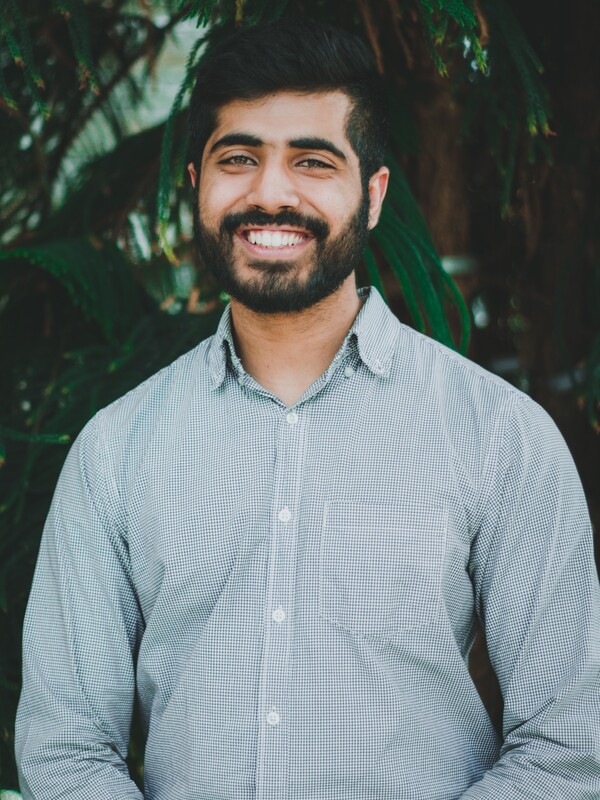
Maaz, Muhammad
Supervisor: Dr. Timothy Chan
Academic Unit: Mechanical and Industrial Engineering
Personal background
I grew up in Toronto and always had a strong interest in the sciences and mathematics. Some of my favourite books were kid-friendly biographies of people like Newton, and so I always knew I wanted to be involved in contributing to our understanding of the world in some way. I did my Bachelor of Health Sciences at McMaster with a minor in Economics and became heavily involved in research in mathematical economics there, focusing on healthcare problems. With Professor Anastasios Papanastasiou (McMaster), I worked on problems like optimizing wait times at hospitals and improving the Canadian residency match, using abstract mathematical tools. Working with him was a transformative experience, and it was during that time that the idea of being a researcher crystallized in my mind. I am now extremely excited to be in the MD/PhD program at UofT, which gives me the flexibility to pursue my somewhat unorthodox research interests. Outside of my studies I enjoy powerlifting and reading.
Research Interests
My current interests are broadly in using advanced mathematical tools, like optimal transport and partial differential equations, to expand our understanding of biomedicine. Much has been written about the fruitful relationship between mathematics and physics since Newton published the Principia, and later between math and chemistry. Biological problems have remained more impenetrable, and even such giants as Von Neumann have been frustrated by the challenges that biology poses to mathematical analysis. However, in the 21st century, I believe there are two reasons to be excited about the future of a more fruitful relationship: more powerful mathematical tools developed in the 20th and 21st centuries, and the newly developed vast biological data sets which now permit empirical verification of mathematical theories. Taking a wider view of medicine, I am also interested in various topics in health economics from a mathematical lens, specifically operations research and matching theory.
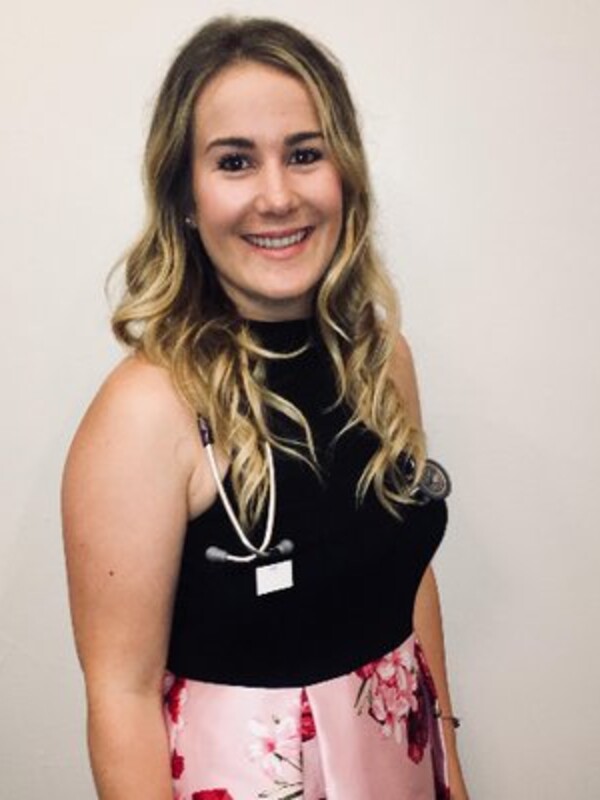
Macklin, Jillian
Supervisors: Dr. Jennifer Gibson and Dr. Heather Ross
Graduate Unit: Institute of Health Policy, Management, and Evaluation (IHPME) - Health Services Research Stream
Personal Background
I completed my undergraduate degree in clinical biochemistry at Western University and my Masters training in the department of Laboratory Medicine and Pathobiology at University of Toronto focusing on cardiovascular immunology. Toronto's inspiring and stimulating environment has led me to pursue both degrees. Outside of the program, I am a soccer player and a people-person - meeting new people is my favourite past time!
Research Interests
I am interested in the role of patient engagement and the patient voice when developing artificial intelligence-based healthcare tools, including a remote telemonitoring system for heart failure patients to access care at home.
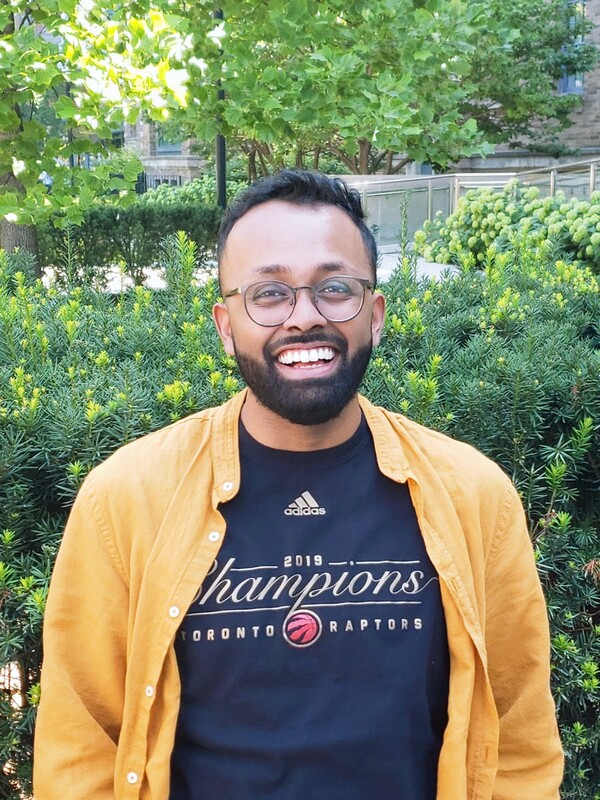
Mahendralingam, Mathepan
Supervisor: Dr. Adam Shlien & Mathieu Lemaire
Academic Unit: LMP
Personal Background
I was born and raised in Scarborough, also known as the greatest place in the world. Before starting the MD/PhD program, I did my undergrad at the University of Guelph, my masters at the University of Toronto and worked as a tech at SickKids for a year. My unconventional and long road to becoming a physician-scientist started with my first research project about cancer metastasis in the lab of Dr. Alicia Viloria-Petit. Here, I quickly learned how cancer hijacked mechanisms used by normal cells to cause mayhem in the human body. It fascinated me how incredibly cunning cancer was, and I wanted to outsmart it. To do so, I completed additional undergraduate research projects and my Masters in the lab of Dr. Rama Khokha to learn as much as possible about this disease. I found it exciting that every single project led to new answers, but also several more questions arose that needed to be asked. It was not until I started volunteering at Princess Margaret as a Healing Beyond the Body volunteer that I realized I neglected arguably one of the most critical aspects of cancer – the disease experience of patients. Each week for the past 3 years, I met patients and their families who told me heart-wrenching stories about their diagnosis. I admired their resilience despite facing aggressive side-effects and exhaustion due to their treatment. These experiences punctuated my ambitions to become a physician-scientist. I saw the impact that both careers had on helping cancer patients and I could not imagine myself doing just one. Outsmarting cancer is a lifelong goal that I am eager to tackle using the clinical and scientific skills I will develop during the MD/PhD program here at the University of Toronto.
Research Interests
My research has spanned from dissecting the cross-talk between signal transduction pathways to studying the interplay between cells in the tumour microenvironment. For my PhD, I will be making a switch from cell biology into computational biology. I want to develop a strong bioinformatic and statistical background that will help me answer future questions and address unmet clinical problems in the fields of cancer genomics and precision health.
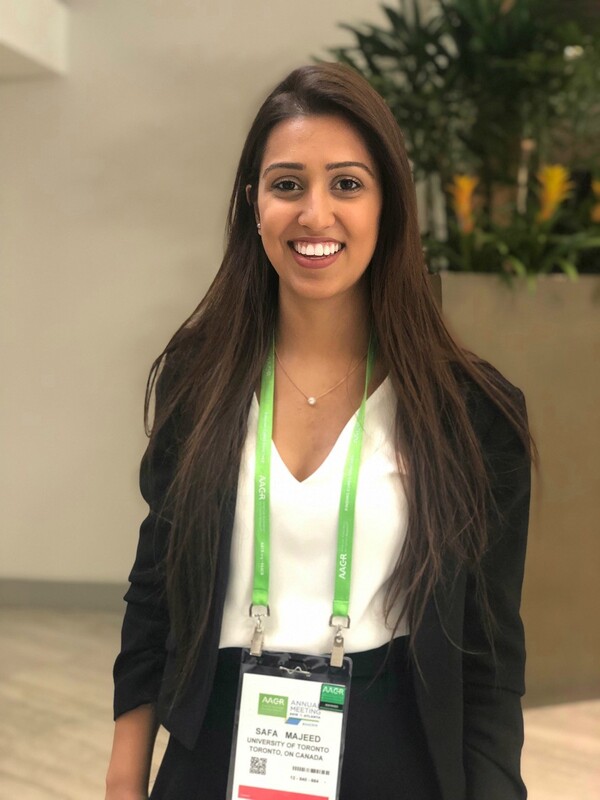
Majeed, Safa
Personal Background
After a happy childhood growing up in the GTA, I attended an all-girls school in downtown Toronto that strongly emphasized female empowerment and leadership. My early aspirations for medicine led me to pursue a Bachelor of Science (Honours) degree at Queen’s University in Kingston, ON, where I majored in Life Sciences. After graduation, I returned to the big city to continue my education at the University of Toronto where I completed a Master of Science in Medical Biophysics. My previous research experiences, and my many mentors, have fostered my curiosity and passion for medicine and translational research. I am excited to continue exploring the intersection of research and clinical practice at the University of Toronto through the combined MD/PhD program. Outside of school, you can find me hiking, rock climbing, camping and enjoying the outdoors with a furry friend always close by.
Research Interests
I have a strong background in oncology, molecular biology and cancer therapeutics. In my PhD, I hope to gain a computational skillset which I can leverage to help predict cancer disease progression and improve precision medicine in oncology. I am also interested in better understanding the wholistic impact of healthcare systems on the outcomes and experiences of cancer patients.
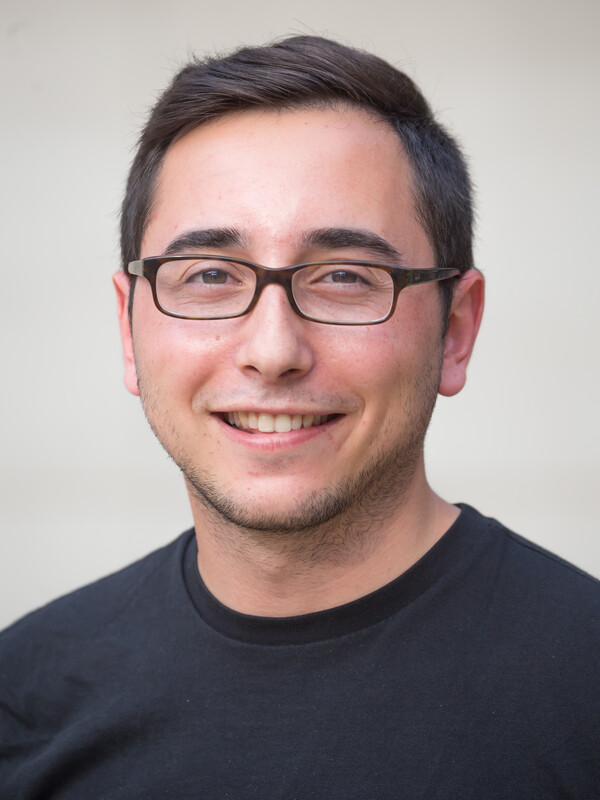
Malkin, Ethan
Supervisor: Dr. Scott V. Bratman
Graduate Unit: Department of Medical Biophysics
Personal Background
I grew up in Toronto and completed an Honours Bachelor of Medical Sciences at the University of Western Ontario, specializing in biochemistry and cell biology. At Western, under the supervision of Dr. David Litchfield, I completed my undergraduate thesis project, in which I developed a fluorescent biosensor for CK2, a protein kinase upregulated in several cancers. The University of Toronto comprises a diverse array of research areas and is home to world-class work being conducted by leading experts in their respective fields. As such, U of T’s MD/PhD program offers an excellent opportunity for me to pursue my research interests and begin my development into a physician scientist. Outside of academics, I enjoy playing and watching sports (especially hockey), cooking, and hanging out with family, friends, and my dog.
Research Interests
Cancer cells actively release many intracellular components via a variety of mechanisms. Unsurprisingly, these secreted components are thought to play major roles in tumourigenesis, metastasis, and host-tumour interaction. My PhD project is focused on characterizing DNA in various components of the cancer cell secretome, primarily small extracellular vesicles and particles. Moreover, I aim to elucidate the role of tumour-derived DNA in the anti-tumour immune response.
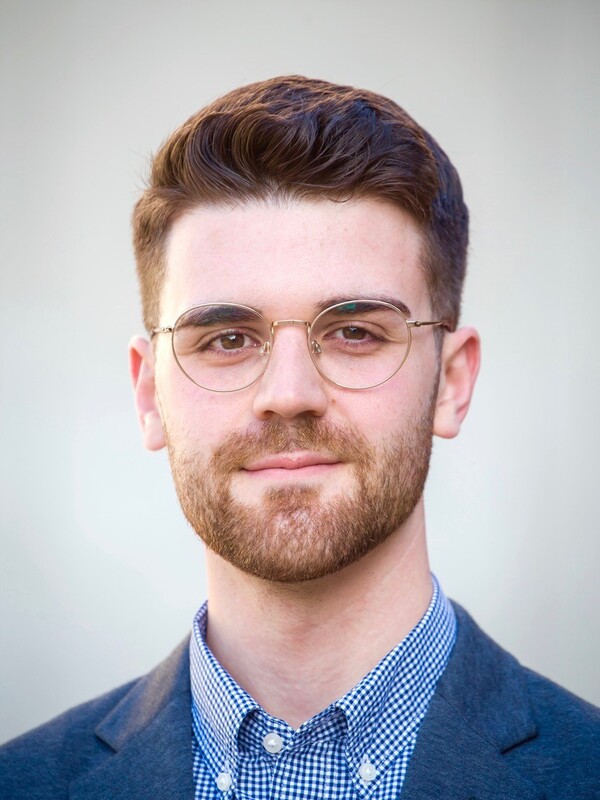
Mazzanti, Andrew
Supervisor: Dr. Miguel Ramlho-Santos
Academic Unit: Molecular Genetics
Personal Background
I was born and raised in Toronto in an Italian-Canadian family with three brothers. I earned my undergraduate degree from Harvard University, where I pursued a liberal arts degree while concentrating in Human Developmental and Regenerative Biology and completing further coursework in LGBTQ+ studies, Italian language/culture, and the plays of Shakespeare. I then completed my MSc in the University of Toronto’s Immunology Department. Throughout my previous studies, I often felt torn between my passion for healthcare work with marginalized communities (specifically the LGBTQ+ and PWA communities) and my desire to conduct basic science research. This tension resulted in my decision to simply do both, and apply to the combined MD/PhD program. Outside of medical and graduate school, I love to play piano and trombone, cook up a storm, keep up with Canadian and American politics and current events, and read (mostly fiction).
Research Interests
My undergraduate research work was in the lab of Dr. Jack Strominger, where we studied the regulation of immunological tolerance at the maternal-fetal interface. This basic question of tolerance first sparked my interest in immunology. During my MSc with Dr. Norman Iscove, I studied the maintenance of self-renewal in hematopoietic stem and progenitor cells. Cancer is a stage on which both immune tolerance and stemness/self-renewal play leading roles. For my graduate work, I am hoping to study either or both of these ideas and their relation to the initiation of cancer.
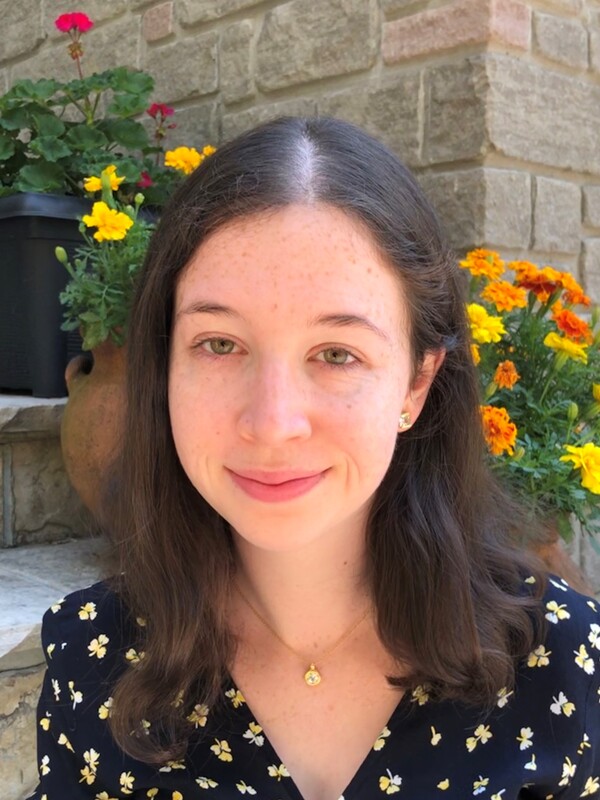
Mazzoli, Vienna
Supervisor: Dr. Uri Tabori
Academic Unit: Medical Biophysics
Personal Background
I grew up in Kleinburg, Ontario and completed my Bachelor of Health Sciences (Biomedical Science Specialization) at McMaster University. Throughout my undergraduate studies, I worked on projects in a variety of areas including immunology, diabetes and vascular disease, statistics, and materials science. I had the privilege of completing my undergraduate thesis under the supervision of Dr. Geoff Werstuck, where I investigated the role of endoplasmic reticulum stress in the pathogenesis of diabetic retinopathy. What drew me to the MD/PhD program was the opportunity to work at the interface of clinical medicine and laboratory research, and apply knowledge from both of these areas to help improve patient health. Outside of research, I enjoy skiing, volunteering at the animal shelter, and hiking with my dog.
Research Interests
During my PhD, I am interested in using machine learning to help guide personalized cancer therapeutics and delivery systems, however, since I am just beginning my MD/PhD studies, the details of my project are yet to be determined.
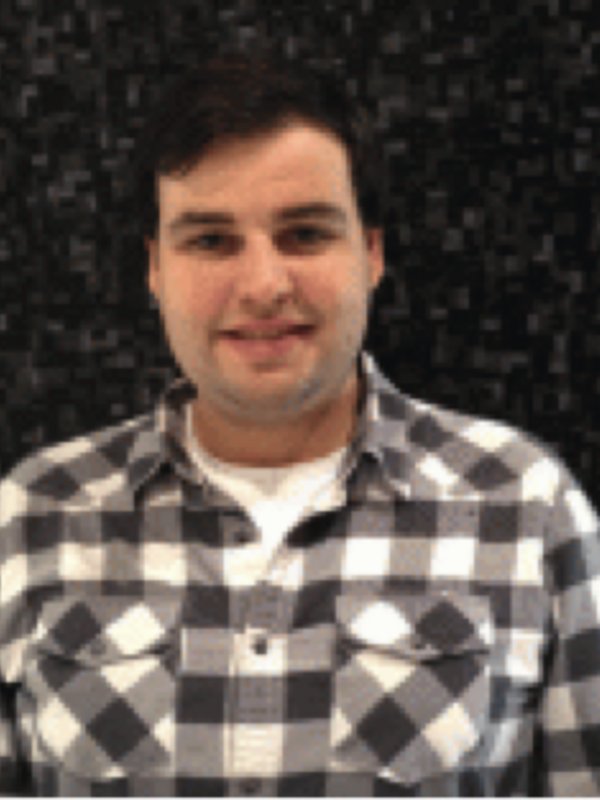
McFaul, Chris
Supervisors: Prof. Rodrigo Fernandez-Gonzalez & Prof. Chris Yip
Academic Unit: IBBME
Project: An automated injection and high-content screening platform for Drosophila
Personal Background
I did my Bachelor of Sciences at McGill University in the Physiology and Physics program. Stemming from my joint program, some of my hobbies include building electronics projects with Arduinos, programming and 3D printing. I chose the MD/PhD program at U of T because of the breadth of research that is being done in the engineering/medical physics fields and so that I could apply my skills to the field of medicine.
Research Interests
My research interests include developing and applying novel imaging/surgical assist technologies to improve patient outcomes. My PhD project will be focused on improving existing neurosurgery microscopy technology. The goals of the project will be to increase low light sensitivity during procedures like photodynamic therapy and to improve surgeon-microscope interactions.
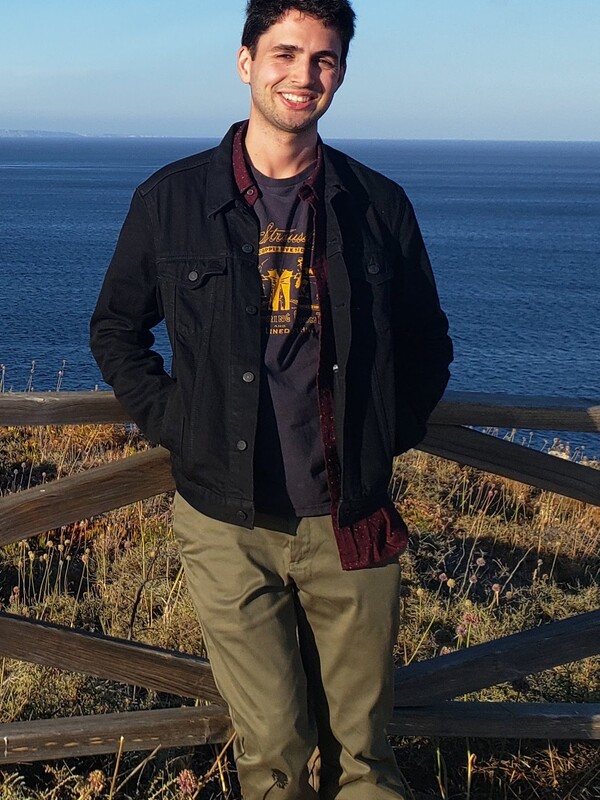
Morgado, Felipe
Supervisor: Dr. Jason Lerch
Graduate unit: Department of Medical Biophysics
Personal Background
I attended the University of Toronto for my Bachelor’s and Master’s degrees in biophysics and medical physics. Before pursuing my PhD in neuroscience, my previous research areas included photodynamic therapy and pulmonary functional imaging. I decided to pursue MD/PhD training because I want to use insights from the forefront of neuroscience to help my patients in novel and impactful ways, while also leading clinical practice at an institutional level. Outside of school, you can find me spending most of my time playing piano, going to shows, or going for a swim.
Research Interests
My PhD research, conducted at The Hospital for Sick Children, focusses on Autism Spectrum Disorder (ASD). It is believed that through its motor and nonmotor regulation, the cerebellum is a crucial site for ASD development. While its connectivity to other regions of the brain is fairly well understood in a healthy population, how this differs in ASD is still relatively unknown. Through imaging-based network analysis, I hope to characterize these connectivity differences within the cerebellum. This may potentially improve our mechanistic understanding of ASD and provide targets for local stimulation therapies in patients with severe symptoms.
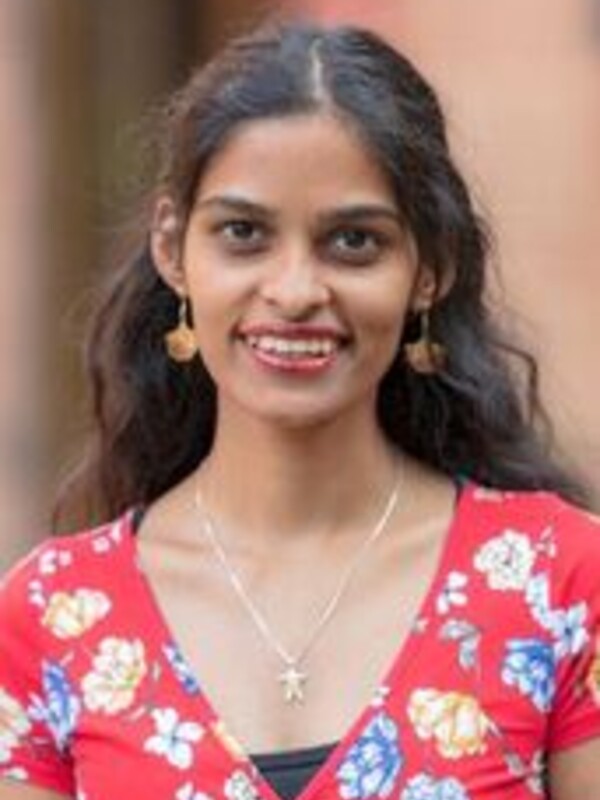
Mylabathula, Swapna
Supervisor: Dr. Charles Tator
Graduate unit: Institute of Medical Science
Personal Background
I completed my undergraduate degree at U of T in Human Biology and Nutritional Science, followed by a non-degree year in Kinesiology. Outside of academics, I enjoy sports [any and all, but hockey and lacrosse, primarily!], music [violin and sitar], and engaging in the U of T community through student groups!
Research Interests
Currently, I am working on evaluation of concussion policies in schools, with the aim of understanding barriers and enablers in implementation and assisting knowledge users by providing information on elements for inclusion in development and implementation. I am also studying female concussion in hockey, and characterizing this injury using a mixed-methods approach in women’s hockey in Ontario.
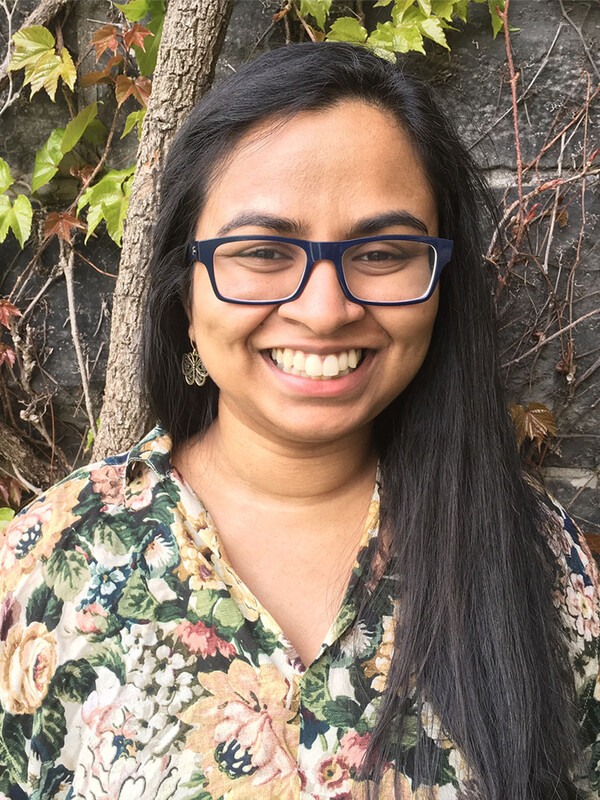
Mylvaganam, Sivakami
Supervisor: Dr. Sergio Grinstein
Graduate unit: Biochemistry
Personal Background
I grew up in Toronto and went to McGill University for an undergraduate degree in immunology. During my time there, I participated in a number of translational research projects in academic, pharmaceutical and public health settings. From these experiences, I developed an appreciation for how integrating basic science research and clinical medicine can have a positive impact. This inspired me to pursue an MD/PhD degree at the University of Toronto.
Research Interests
I am pursuing my PhD in the department of Biochemistry. I am interested in how cells regulate the mobility of receptors or other molecules on their membranes in physiology and disease.
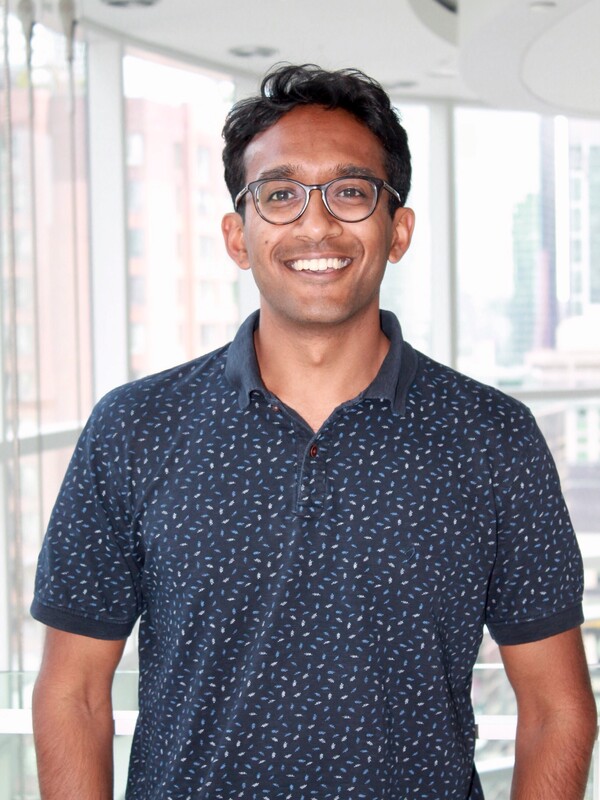
Nagaraj, Sujay
Supervisor: Dr. Anna Goldenberg
Graduate unit: Computer Science
Personal Background
I moved to Canada from India when I was quite young and grew up in Calgary, Alberta. I grew up with a love for scientific inquiry and channeled this passion through competing in science fairs. I was able to represent my city, province, and country at local, national, and international science competitions. For my high school achievements, I was awarded the Chancellor’s Scholarship at Queen’s University, and I spent four years there pursuing my Bachelor of Science Degree with a Life Sciences Major and a Computer Science Minor. Upon completion of my undergraduate degree, I chose to attend the University of Toronto for the dual MD/PhD Program. This career pathway allows me to channel my interests in science, innovation, and patient care.
Research Background
I am pursuing my PhD in the Department of Computer Science, as the first MD/PhD student in Toronto to do so, as well as one of few future clinicians in this discipline. The topic of my thesis centers on the use of mobile devices such as smartphones and smartwatches as well as machine learning in improving our understanding of disease processes outside of the hospital setting. After completion of my MD/PhD, I will be one of the few clinicians in the world with a rigorous technical background in machine learning working to innovate in the field of healthcare.
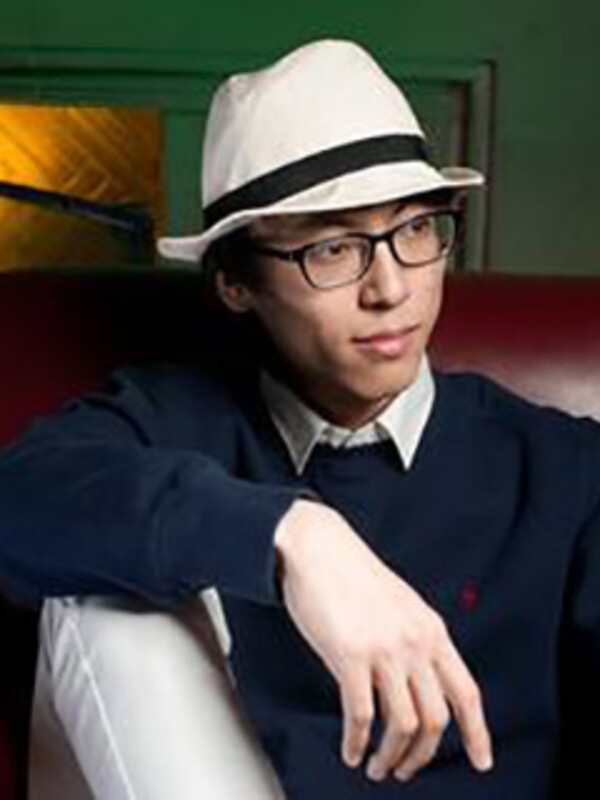
Oh, Hyun Seo (Robin)
Supervisor: Dr. Daniel Schramek
Academic Unit: Molecular Genetics
Personal Background
I completed a double specialist in Immunology and Physiology at the University of Toronto. Here, I learned about the complexities of molecular and genetic interactions that culminate to an overall physiological phenotype. I became interested in the MD/PhD program because I couldn’t give up my love for research to pursue my dream of being a doctor. During my undergraduate studies, I fell in love with research through studying the role of Atypical Cadherin Fat on growth regulation and planar cell polarity in Dr. Helen McNeill’s lab. The age-old questions in developmental biology are: How do cells know how big an organism should be, and how do they orient and organize themselves? For example, we never see a mouse the size of an elephant or an elephant the size of a mouse. Planar cell polarity refers to how cells know how to orient themselves amongst each other. Interestingly, the same genes involved in the processes that determine how our cells grow and orient themselves are often mutated in cancer.
Research Interests
Due to the way, our genes are programmed, several mutations must cooperate to set off the chain reaction that leads to cancer. If we can map and identify the complex interactions of gene mutations in cancers and their microenvironment, we can develop specific inhibitors that can potentially halt the start or metastasis of cancers. Previously, these studies took years because of the time it took to develop mouse models with multiple mutations. Now, with the advent of new technologies, these studies can be done within weeks in mouse and human models that directly mimic the tumor environment. For my PhD, I hope to tease out how dysregulation of signaling networks that interact with the Hippo pathway can lead to cancer pathogenesis and metastasis.
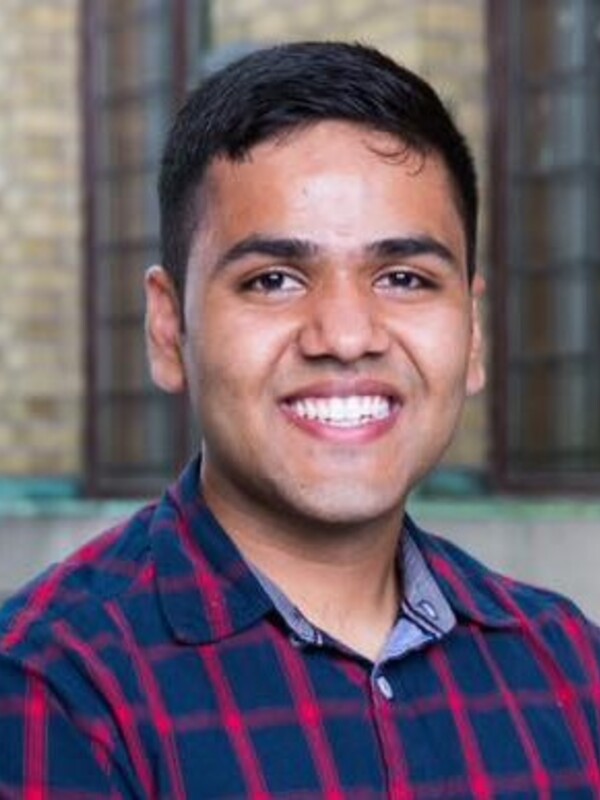
Patel, Kramay
Supervisor: Dr. Milos R. Popovic (Toronto Rehab, UHN)
Graduate Unit: Institute of Biomaterials and Biomedical Engineering (IBBME)
Personal Background
I completed my undergraduate degree through the Engineering Science program at the University of Toronto, graduating with a Bachelors of Applied Sciences (BASc), with a major in Biomedical Systems Engineering and a minor in Robotics and Mechatronics in 2016. During my undergraduate degree, I undertook research projects with the overall theme of improving trunk stability in individuals with motor deficits caused by disease or traumatic injury. Through this experience, I had the opportunity to interact with both engineers and clinicians in a setting where the primary goal was to improve patient quality-of-life. I noticed that there was a stark difference in skillset and experience between the two professions and realized that there was a need for more individuals who could bridge the gap. I realized that there was a need for individuals who could not only identify clinical problems and frame them from a patient’s perspective, but also have the technical skillset necessary to effectively approach and tackle these problems. I believe that clinician scientists are best suited to fill this gap and improve healthcare and its delivery, which is why I chose to pursue MD/PhD training. I chose to do so at the University of Toronto because of the immense diversity of research offerings here and a rich network of academic hospitals.
Research Interests
My undergraduate research work specifically focused on (1) understanding the biomechanics and electrophysiology of the human trunk and its responses to dynamic environmental perturbations and (2) developing neuroprostheses to improve dynamic trunk stability using a technology called Functional Electrical Stimulation. In my fourth-year thesis project, I undertook the development of a novel, single neuron-based brain machine interface in a rodent model, which could be used to improve the efficacy with which individuals with neuro-motor deficits interact with their environments. Through my PhD, I hope to further explore this field of intracortical brain machine interfaces. I also hope to work on utilizing electrical stimulation techniques such as deep brain stimulation to augment memory function in both, healthy individuals and those suffering from cognitive deficits due to disease or injury.
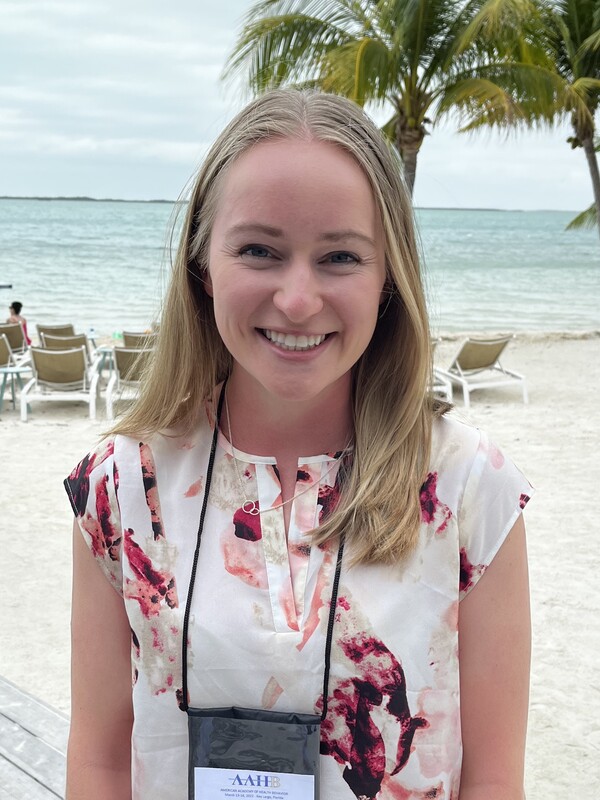
Postill, Gemma
Personal Background
I am originally from Toronto, though I have lived in several cities across Canada. I completed my undergraduate degree at Western University where I studied One Health, which looks at the intersection of human, animal, and environmental health. During my undergraduate degree, I developed an interest in data science and the value that can be leveraged from it through applying machine learning and artificial intelligence to electronic health records. I worked under the supervision of Dr. Mark Daley and Dr. Dirk Huyer to explore the application of cremation data to identify timely patterns in all-cause population mortality, a new application of their recently digitized cremation data. It was the application of these findings in the pandemic that highlighted for me the positive impact on population health that I could have as a clinician scientist. This led to the pursuing of my MD / PhD at the University of Toronto. When not studying or researching, I can be found travelling, cycling, doing yoga, or eating ice cream!
Research Interests
I am also interested in researching how health and illness are distributed socially and spatially. Specifically, I want to understand how the social and geographic factors influence acute care outcomes. I will do this through leveraging population health data, machine learning algorithms, and geospatial analysis.
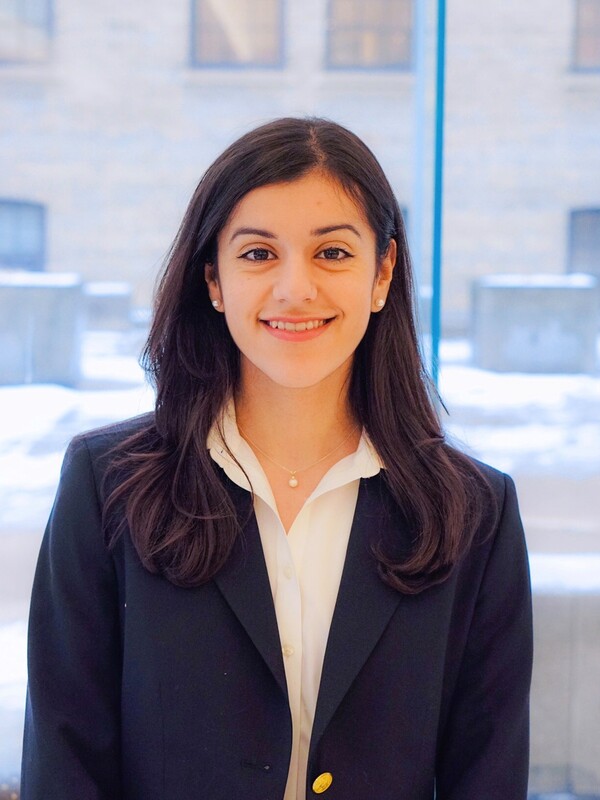
Psarianos, Pamela
Supervisor: Dr. David Malkin
Graduate Unit: Department of Medical Biophysics
Personal Background
I completed my undergraduate degree in Life Sciences at the University of Toronto, with a focus on physiology and biochemistry. Following my first year, I became involved in research exploring novel therapeutics in the treatment of acute myeloid leukemia. My interest in chemotherapeutics led me to pursue research under the supervision of Dr. Fei-Fei Liu at the Princess Margaret Cancer Centre, where I continued as a research student for the remainder of my undergraduate degree. Following this, I completed my Master’s degree in the Department of Medical Biophysics at the University of Toronto, continuing to work under the supervision of Dr. Liu as a STARS21 scholar. My graduate research explored the role of metabolism in the development of radiation fibrosis, a severe side effect of radiotherapy experienced by many cancer patients. Working at the Princess Margaret Cancer Centre, I was frequently exposed to the unique role of the clinician scientist, as well as the incredible impact of translational and research-driven medicine. Combined with these experiences, my passions for both medicine and science drove me to pursue the combined MD/PhD program at the University of Toronto. Outside of academics, I am passionate about music and I sing with the Toronto Mendelssohn Choir. I also enjoy running, and am currently training for my first marathon!
Research Interests
My Master’s research was largely focused on the role of fibroblast metabolism in the development of fibrosis. Through this work, I became interested in the interplay between fibroblasts and the overall architecture of both normal and diseased tissue. I will be starting my PhD under the supervision of Dr. David Malkin, and am excited to pursue studies which will combine my interests in fibroblast metabolism and oncology in the context of Li-Fraumeni Syndrome.
Rahman, Anum
Supervisor: Dr. John Sled
Graduate Unit: Department of Medical Biophysics
Personal Background
I completed my undergraduate degree in Human Biology (specialist) and my Masters in Medical Biophysics (both at University of Toronto). Under the supervision of Dr. John Sled at the Mouse Imaging Centre, I studied how the pulse wave reflection in the mouse umbilical artery can be used to detect changes in placental vascular morphology. During my time here, the implications for translating this knowledge from mouse studies to human pregnancies led me to pursue the MD/PhD program. Apart from my research interests, I enjoy cooking numerous curries and playing volleyball.
Research Interests
I am interested in maternal/fetal health and find the relationship between the intrauterine environment and fetal development fascinating.
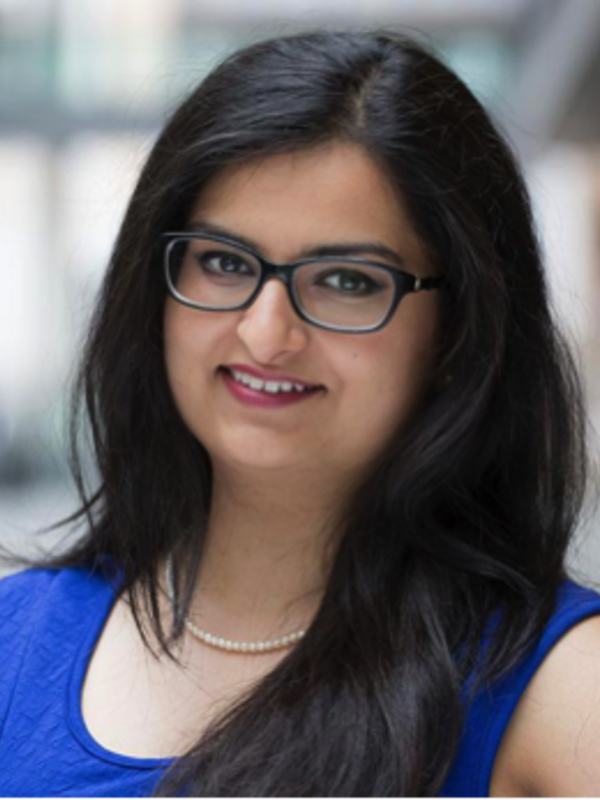
Rajora, Maneesha
Supervisor: Dr. Gang Zheng
Graduate Unit: Institute of Biomaterials and Biomedical Engineering
Personal Background
Hailing from Halifax, Nova Scotia, I moved to Toronto to complete my M.A.Sc. in Biomedical Engineering, with a focus on developing biomaterials and drug-delivery systems. Prior to conducting graduate studies at the University of Toronto, I completed my undergraduate degree in Chemistry at Dalhousie University. I chose to pursue the MD/PhD program at the University of Toronto on the basis of its renowned excellence in biomedical research and medical education. During my training, I hope to build a foundation of skillsets pertinent in identifying clinical needs in biomaterials development, conducting materials-centred research to address these needs, and effectively delivering patient care as a clinician-scientist.
Research Interests
My research interests lie in the engineering of clinically-relevant biomaterial platforms to enhance therapy delivery to the brain. Specifically, I am interested in developing non-invasive micro and nanotechnologies to address limitations in bypassing tumor vasculature to ultimately enhance the targeted delivery of therapeutics to brain tumors, and thereby improve cancer therapy.
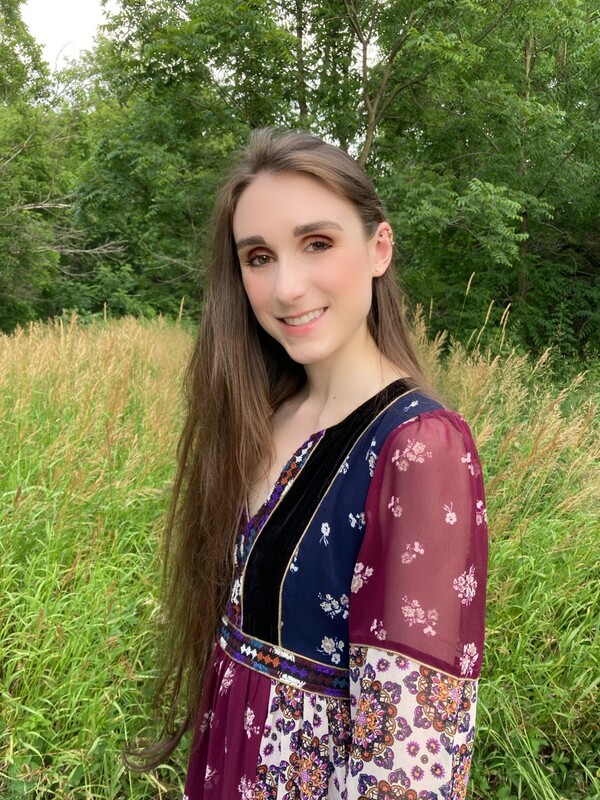
Rennie, Olivia
Personal Background
I originally completed my undergraduate studies in Neuroscience at UofT, afterwards working at SickKids Hospital in Genetics & Genome Biology, where I collaborated with a research team investigating the genetics of autism spectrum disorder. During this time, I also returned to UofT to complete programs in Theatre, Literature, & Film, before entering medical school. As a lifelong learner, I’m constantly seeking to dive deeper – whether exploring the sciences, or the arts. It was my passion for driving innovation in the medical field that led to my decision to enter the MD/PhD program out of my first year in the MD program. Outside of the classroom or lab, I carry on my enthusiasm for the arts, primarily in theatre and film. As a screenwriter, playwright, and independent filmmaker, I seek to bring stories of medicine and science to life through art – using my lens as a young scientist and medical student to do so.
Research Interests
With a background in two very different areas – genetics, and emergency medicine, I took time to reflect on what I wanted to pursue for my PhD. I eventually settled on cardiac arrest and resuscitation, working with Emergency physician Dr. Steve Lin. While the specifics of my PhD project are still being finalized, I am gravitating towards a project exploring outcomes in patients with opioid-induced cardiac arrest/overdose.
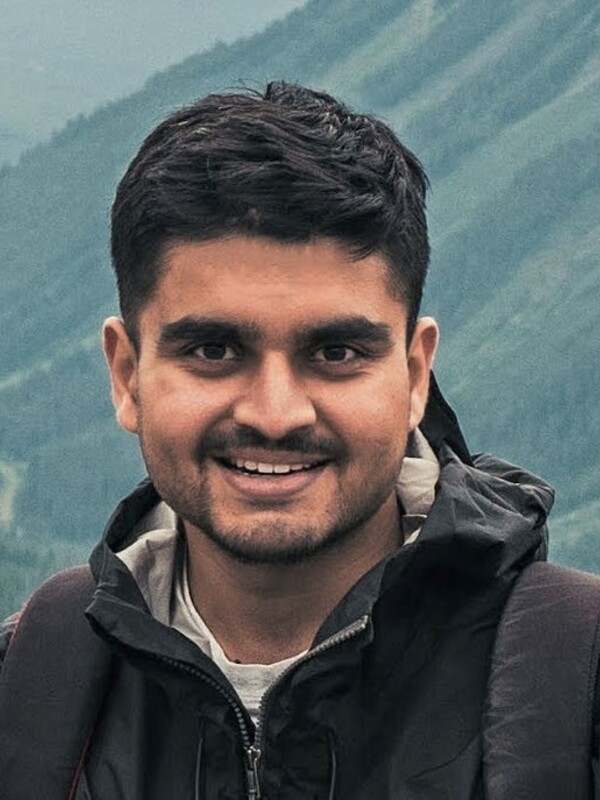
Shah, Prajay
Supervisor: Dr. Taufik Valiante
Graduate unit: Institute of Biomaterials and Biomedical Engineering
Personal Background
I grew up in Calgary, and completed an Honors undergraduate BSc degree at the University of Calgary in 2017. Here I developed much of my interest in Neuroscience and Medicine, working with the neural stem cells under the supervision of Dr. Jo Stratton, Dr. Jeff Biernaskie, and Dr. Rajiv Midha. At the U of C, I was inspired by the scientific pursuit and drive of my mentors. I am now pursuing an MD/PhD at the University of Toronto to continue to develop my interest in neuroscience and medicine.
Research Interests
Information flow and computation are two of the basic fundamental functions of the brain. The goal of my PhD research is to learn more about the mechanisms by which neural systems achieve and carry out these functions, and to use these insights to develop novel treatments for neural circuit disorders, such as epilepsy.
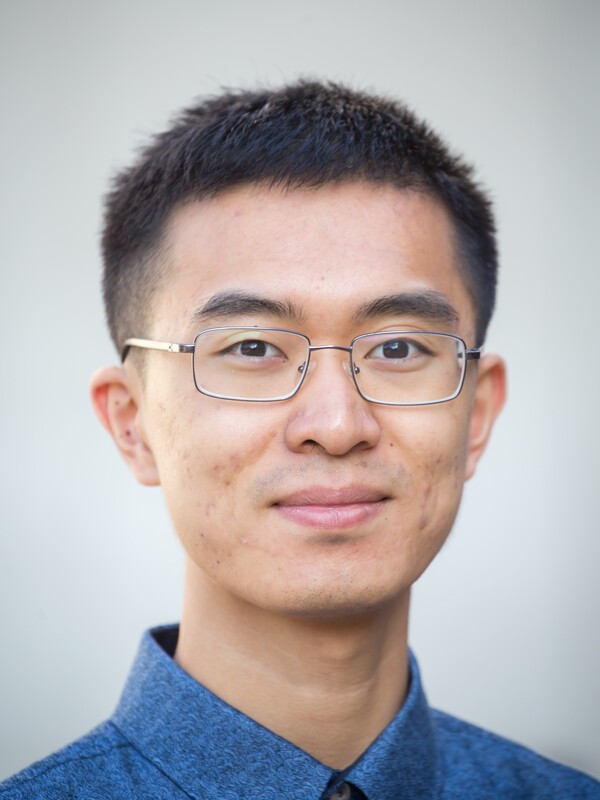
Shi, Runjie (Bill)
Supervisor: Professor Willy Wong and Professor Moshe Eizenman
Graduate unit: IBBME
Personal Background
I graduated from the Engineering Science program at the University of Toronto (B.A.Sc.), with a major in Biomedical Systems Engineering and a minor in Robotics and Mechatronics in 2019. During my undergraduate degree I had the opportunity to apply my engineering skill set to design innovative medical solutions during my summers and PEY internship program. I was fortunate to meet many mentors—clinicians, scientists and engineers—in the Toronto medical community who share the common goal of providing better patient care and inspired me to become a physician scientist. I am excited to join the MD/PhD program to become a multidisciplinary researcher who both understands clinical practice and draws knowledge from all scientific fields to improve medicine.
Research Interests
(1) Creating affordable, portable, and personal medical devices that improves patient experience and outcome. This includes my current effort in creating a VR-based smartphone visual field analyzer. (2) Medical signal processing and image analysis, particular in application towards imaged-guided therapy for cancer surgery. (3) Applications of computational technology, such as machine learning and finite element analysis, to provide more useful information to clinicians from a multitude of patient data.
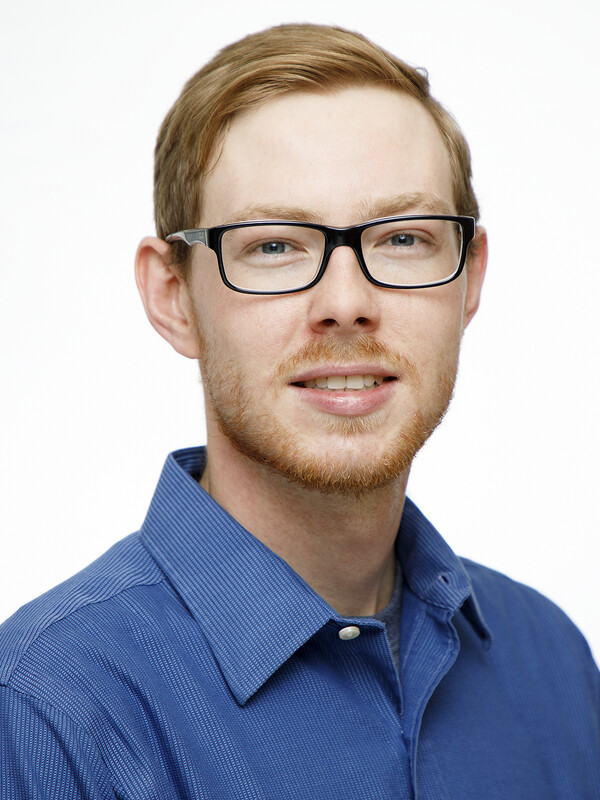
Walpole, Glenn
Supervisors: Dr. Sergio Grinstein and Dr. John Brumell (Cell Biology Program, SickKids)
Graduate unit: Biochemistry
Personal Background
I was born and raised in a small farming community along the shores of Lake Huron in southwestern Ontario and completed my undergraduate degree in Biochemistry (Biomedical Research Specialization) at McMaster University. Outside school, I play bagpipes professionally and compete in solo bagpiping competitions throughout Ontario and North America. As well, I am currently Vice President of the Toronto Branch of the Piper’s and Pipe Band Society of Ontario (PPBSO), and assist the Guelph Pipe Band at summer competitions. Outside of music, I am an avid golfer who can usually turn in a mid to low 70s score but also have the talent to turn in a mid 90s score without too much difficulty. I am also not Scottish, although I am asked this question regularly!
Research Interests
I became interested in the way cells function at a molecular level during my time in the laboratory of Dr. Ray Truant at McMaster University where I realized that understanding the cell biology of a particular disease can provide important avenues for therapeutics. I joined the MD/PhD program at the U of T in the fall of 2015 because it will allow me to understand and appreciate the mechanisms of a disease from the cellular level to the level of patients in the clinic. My current focus lies under the umbrella of host-pathogen interactions where I have mainly worked to better understand disease caused by two human pathogens, Salmonella Typhimurium and Burkholderia cenocepacia.

Wennberg, Erica
Supervisors: Dr. Astrid Guttmann
Graduate unit: institute of health policy, management and evaluation
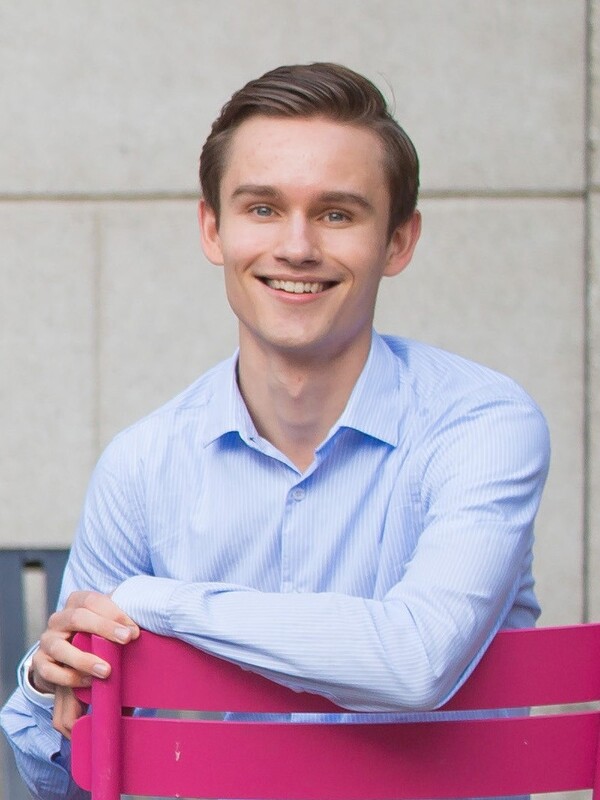
Ware, Matthaeus
Supervisor: Dr. Peter Dirks
Graduate unit: Department of Molecular Genetics
Personal Background
Before coming to Toronto, I completed my Bachelor of Science in Honours Neuroscience at McGill University. During my undergraduate years, I was immersed in a community of peers and faculty genuinely fascinated by the brain. As for my own mind, it has developed to create, to dance, to play and enjoy music, and to admire God’s creation while exploring it through scientific research. Having the opportunity to pursue one’s vocational objective is an immense privilege; though I can never truly earn it, I am continually grateful to have it.
Research Interests
For my doctoral research, I am exploring how the brain’s environment contributes to the genesis/development of a deadly brain cancer called glioblastoma (GBM). My desire to unite neuroscience and oncology is driven by the combination of my educational background, research experiences, and clinical interests.
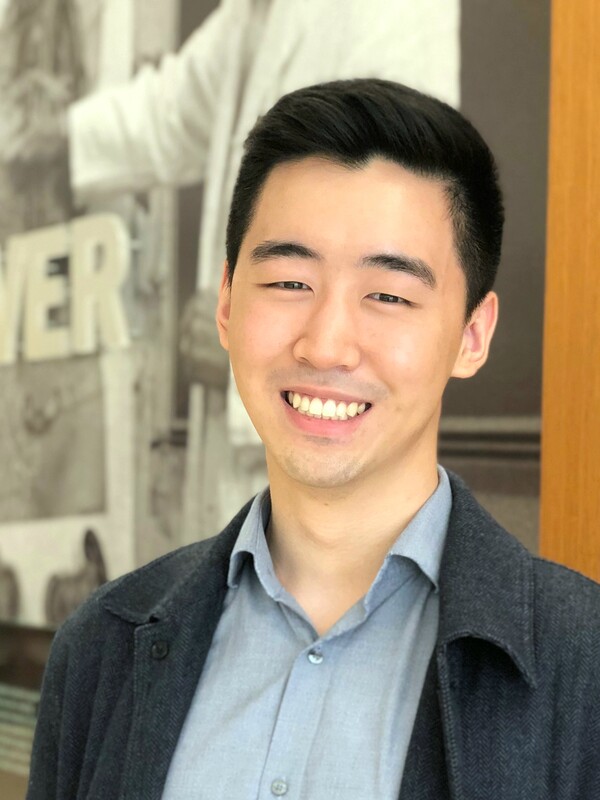
Zeng, Andy
Supervisor: Dr. John Dick
Graduate unit: Department of Molecular Genetics
Personal Background
I grew up in Coquitlam BC and completed my undergraduate degree in Molecular Biology at Simon Fraser University. Throughout this time I worked at the BC Cancer Agency where I studied mitochondrial genetics in cancer in the lab of Dr Angela Brooks Wilson. I also spent some time in Montréal evaluating chemical inhibitors of cancer cell division in the lab of Dr Benjamin Kwok. The research I conducted, paired with my humanitarian work and personal experience, inspired me to pursue an MD/PhD to study and treat cancer. I chose UofT because of how intimately clinical medicine and basic science research are interwoven here. In my spare time, I like to go swimming, practice martial arts, and breakdance.
Research Interests
I want to understand how cancer develops and how it gains resistance to chemotherapy. In John Dick's lab, I am studying the transformation of normal hematopoeitic stem cells (HSCs) into leukemic stem cells, using a combination of single-cell omics and experimental approaches to understand how the cellular machinery of the HSC gets hijacked as it progresses to malignancy.
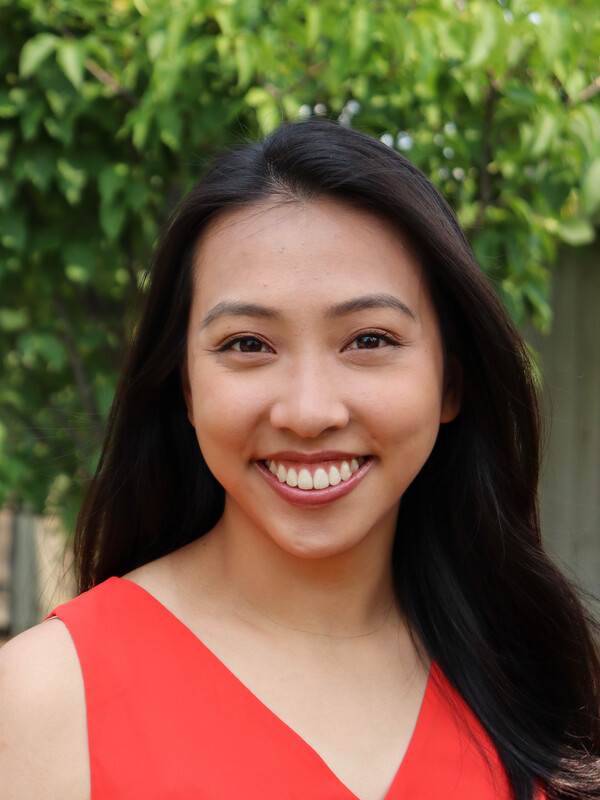
Zhou, Angela
Personal Background
I completed my undergraduate degree specializing in Pharmacology at the University of Toronto. Throughout my undergraduate degree, I worked on projects spanning multiple research areas from toxicology to metabolomics to regenerative medicine. With a passion for patient care and discovery, I was drawn to the MD/PhD program at U of T. I am excited to join a program that will equip me with the training and skills to work at the intersection of medicine and research. Outside of academics, I am part of the U of T synchronized swimming club! I also enjoy running, hiking, and baking!
Research interests
As I am just embarking on my MD/PhD training, I have yet to decide on a research project. However, I am broadly interested in developing strategies to enhance the use of stem cells for applications in regenerative medicine. In addition to my interests in translation research, I am also interested in exploring avenues in health policy and management to gain skills that will allow me to improve patients’ treatments and care.
